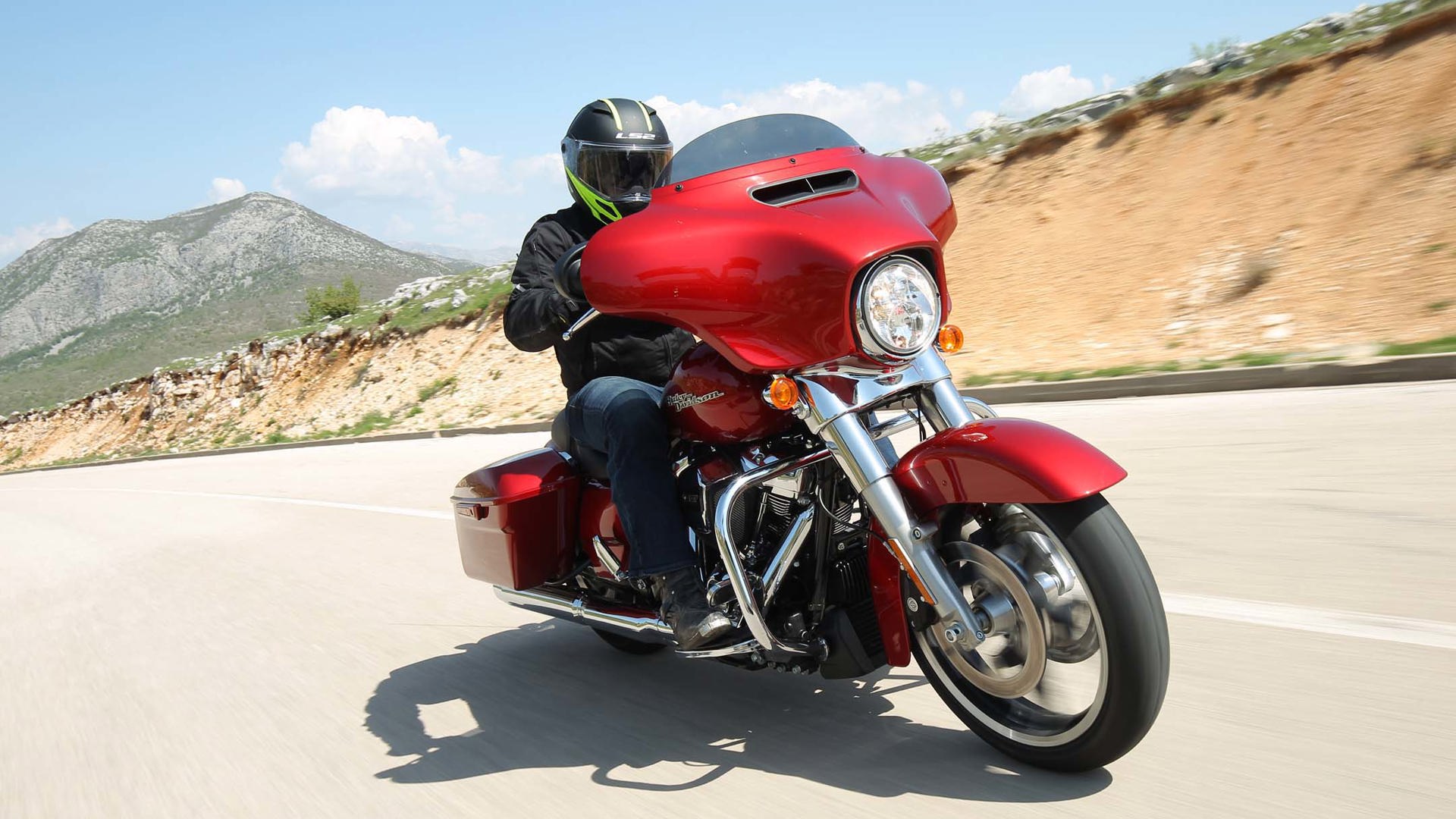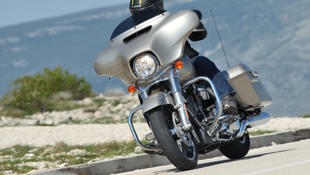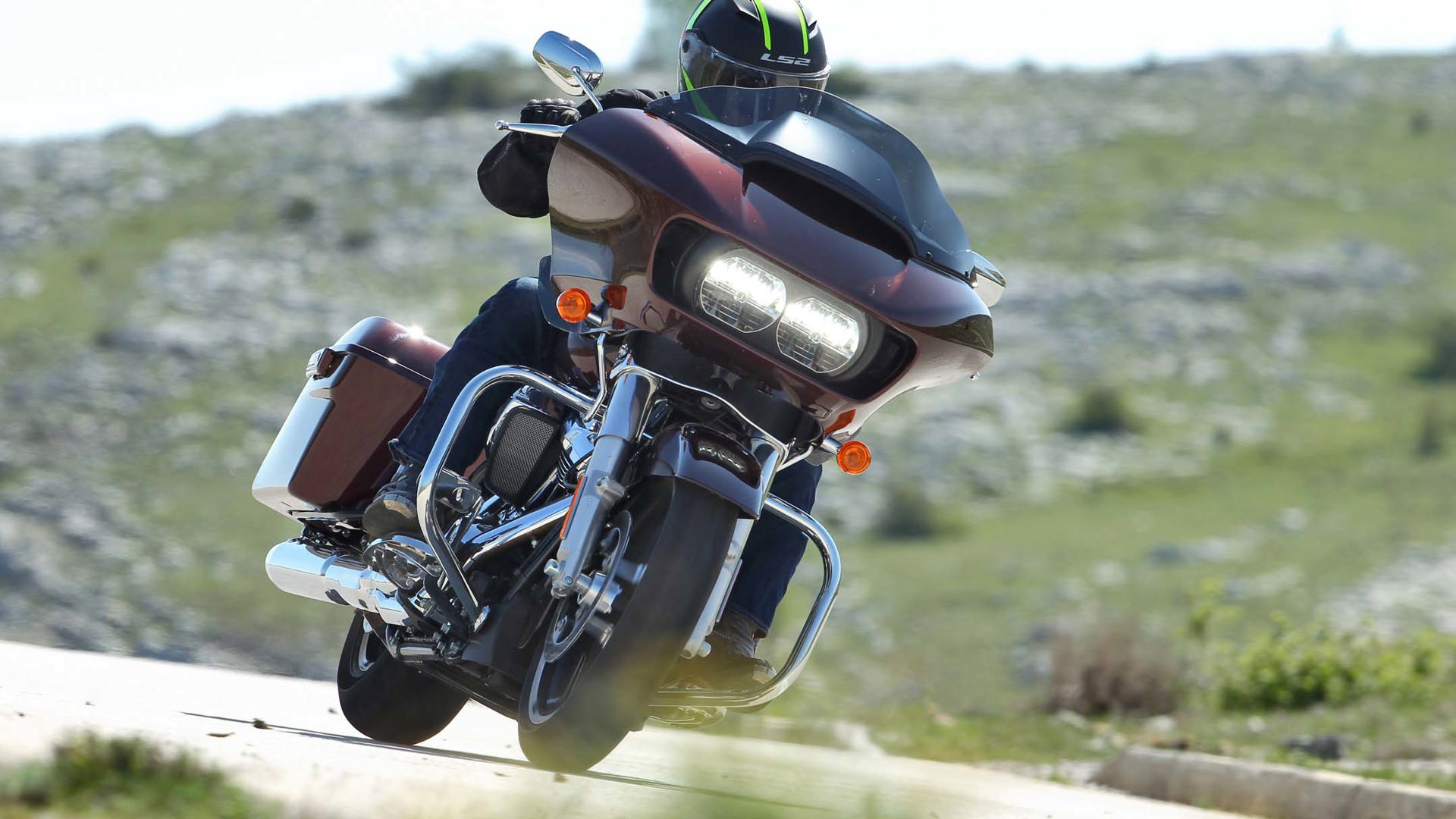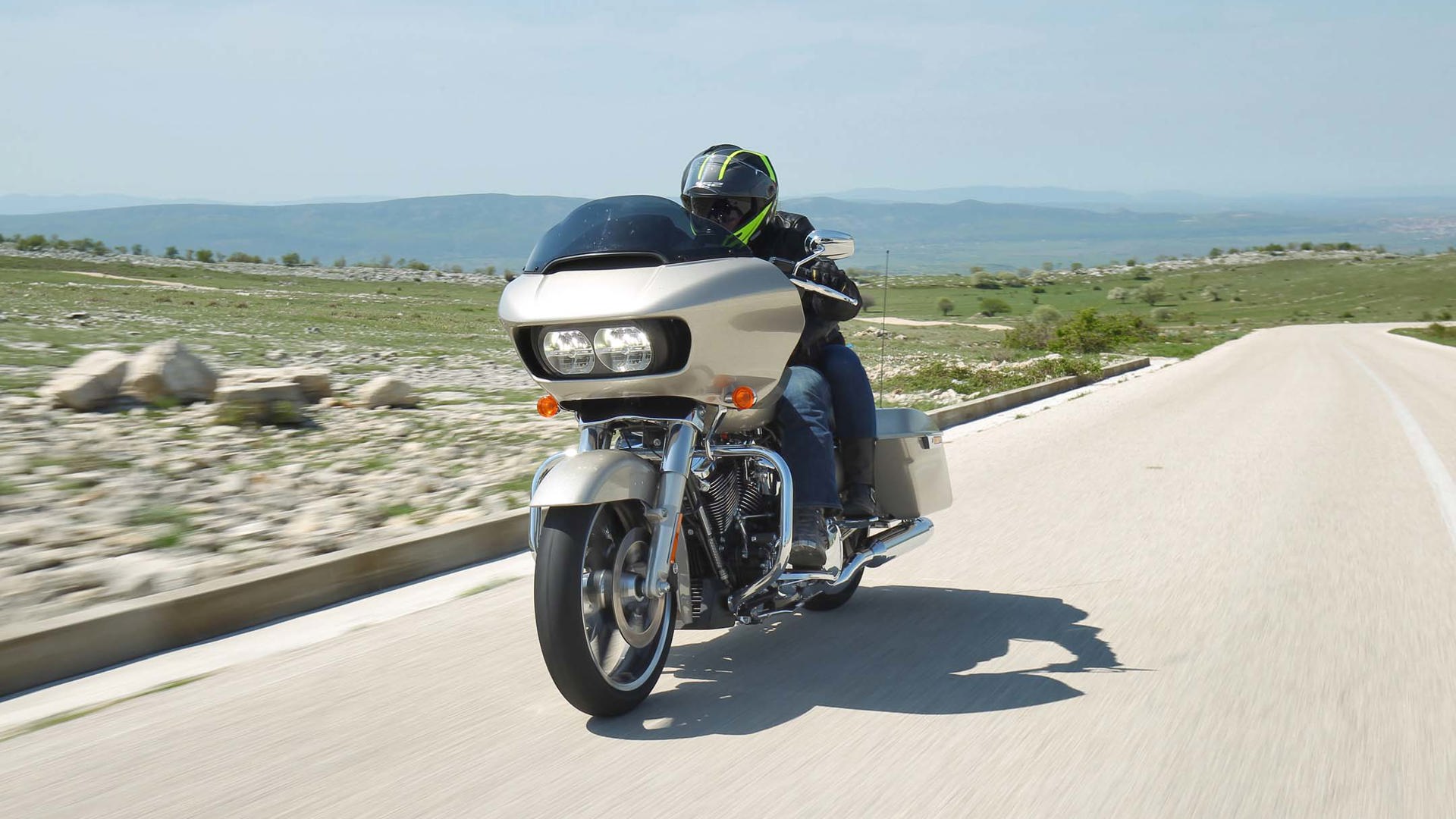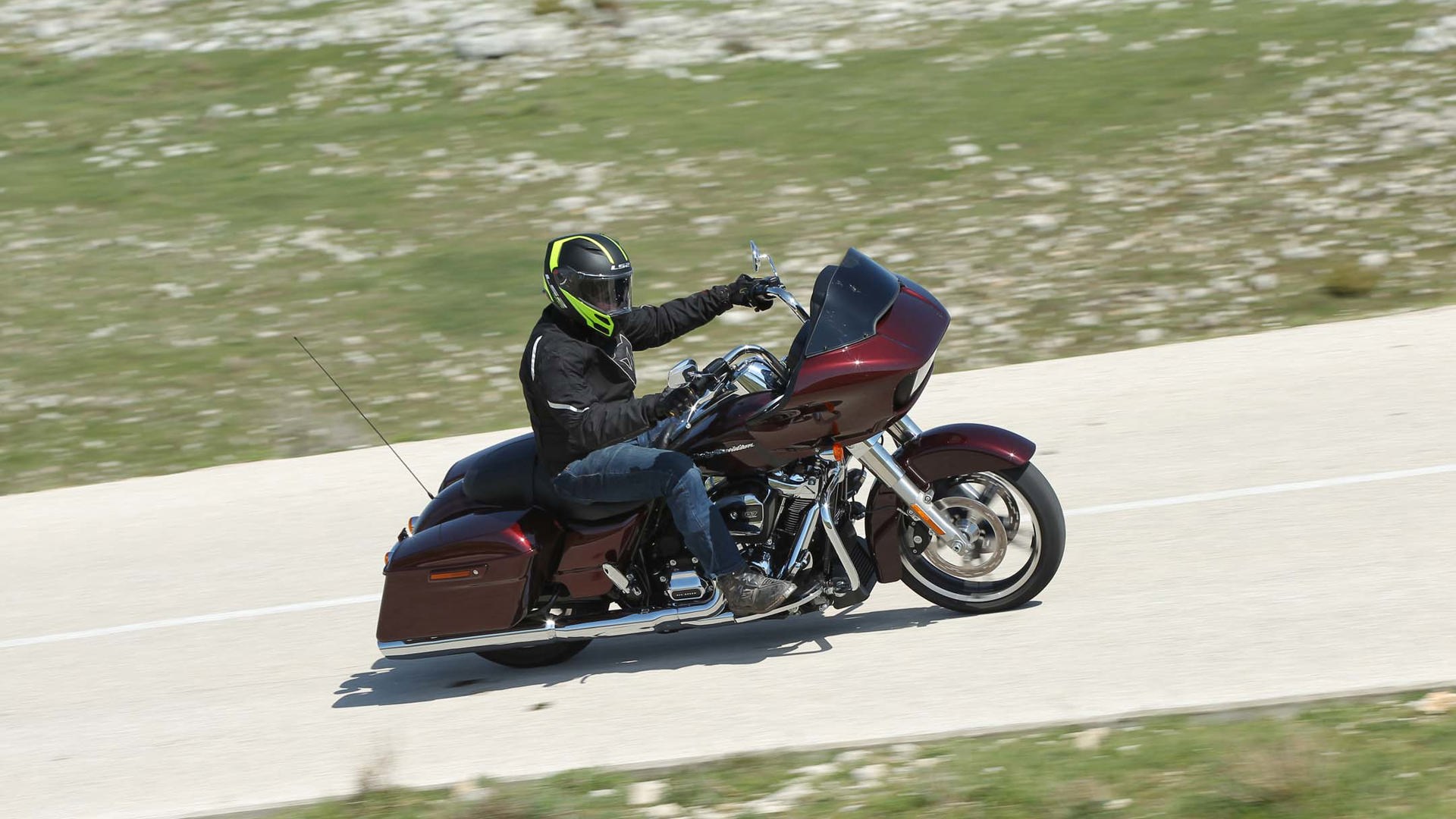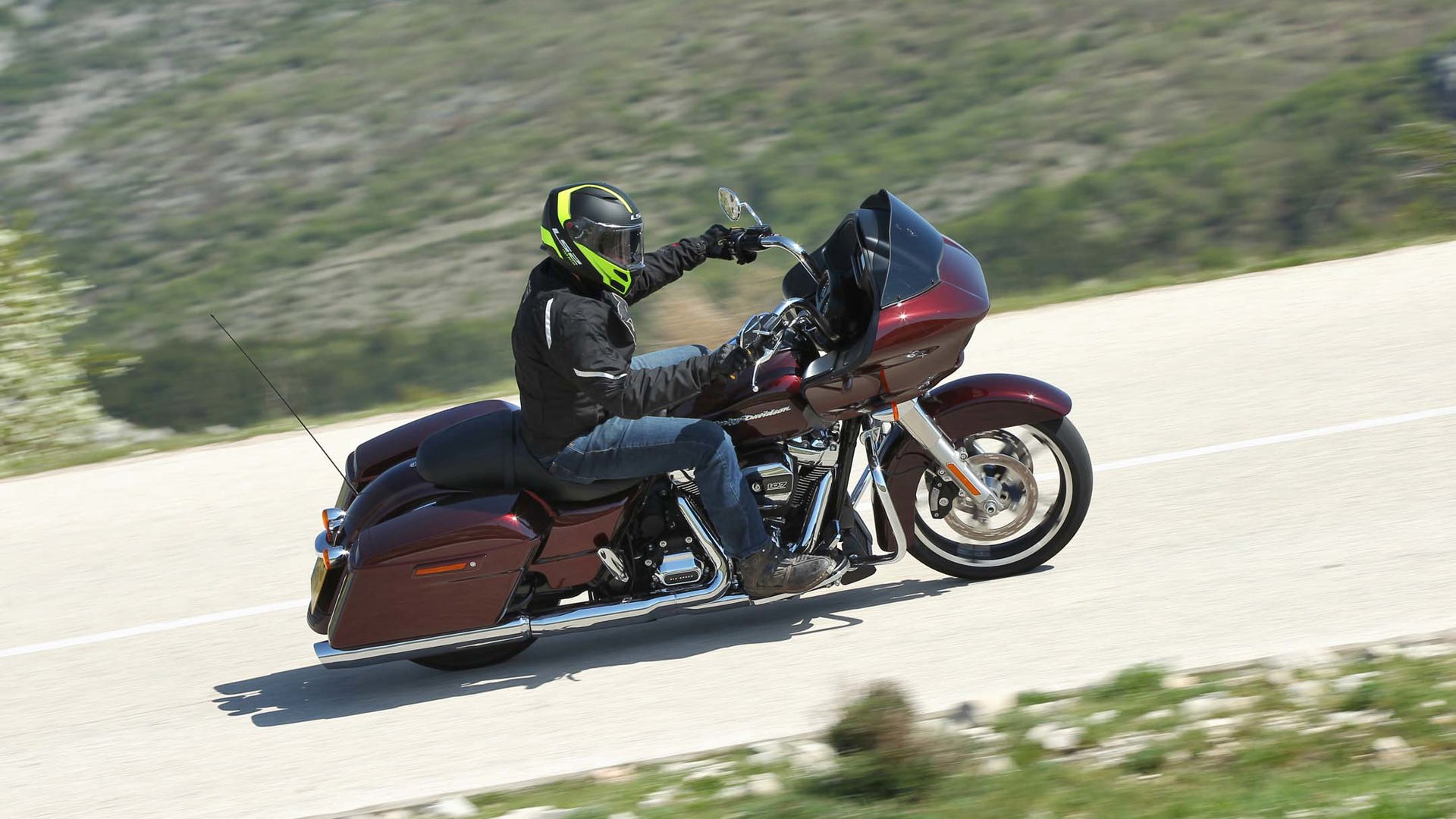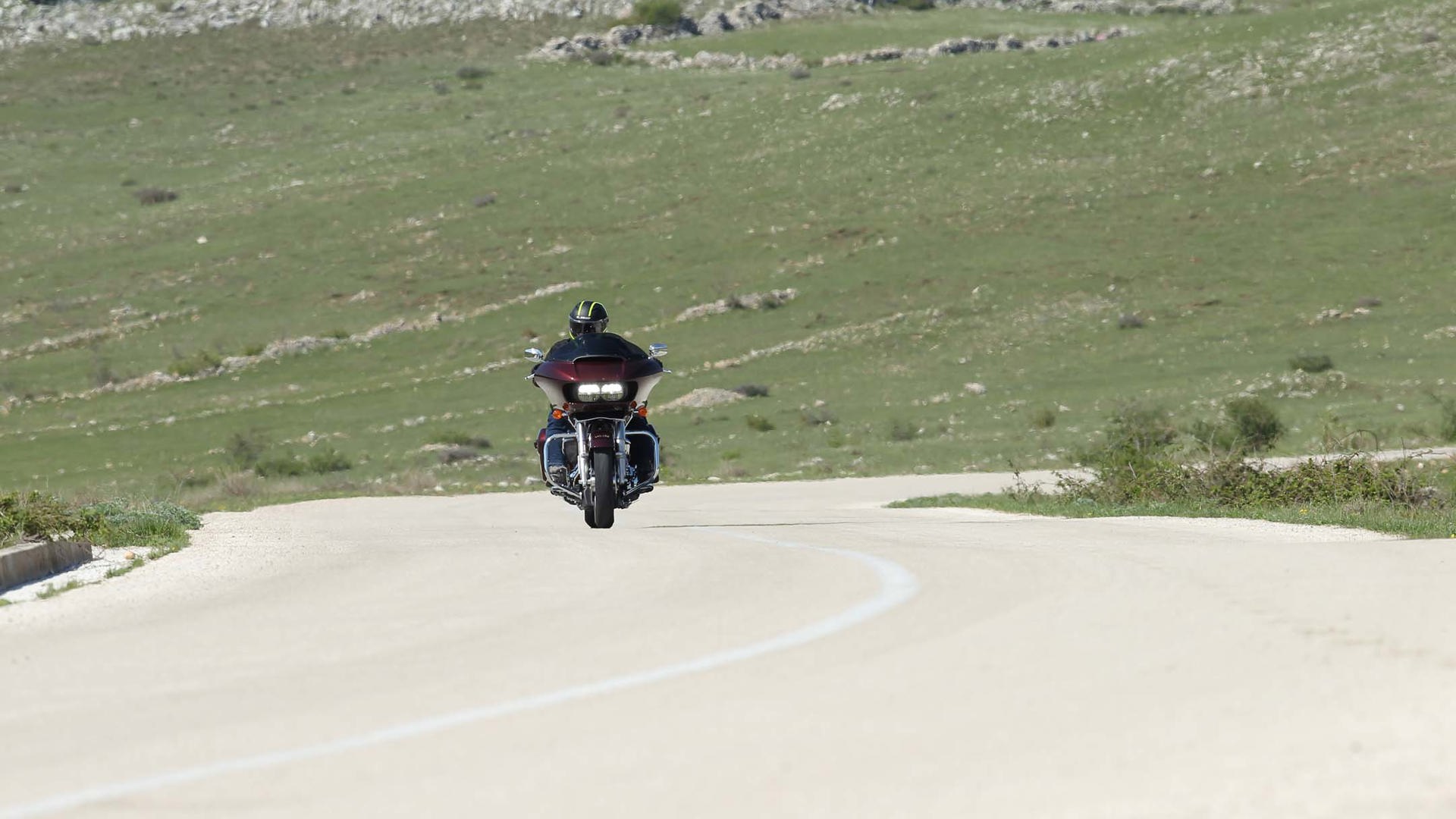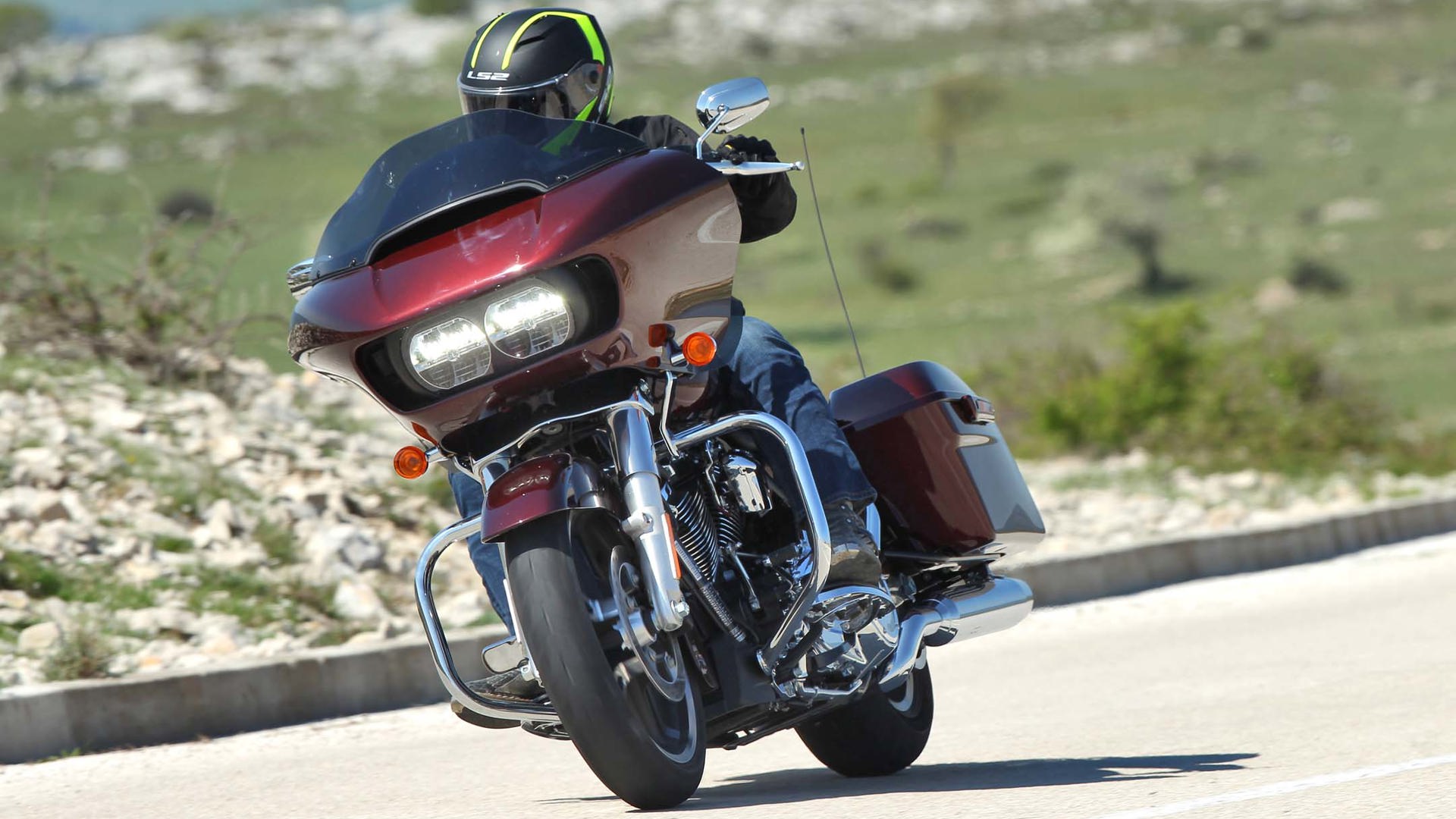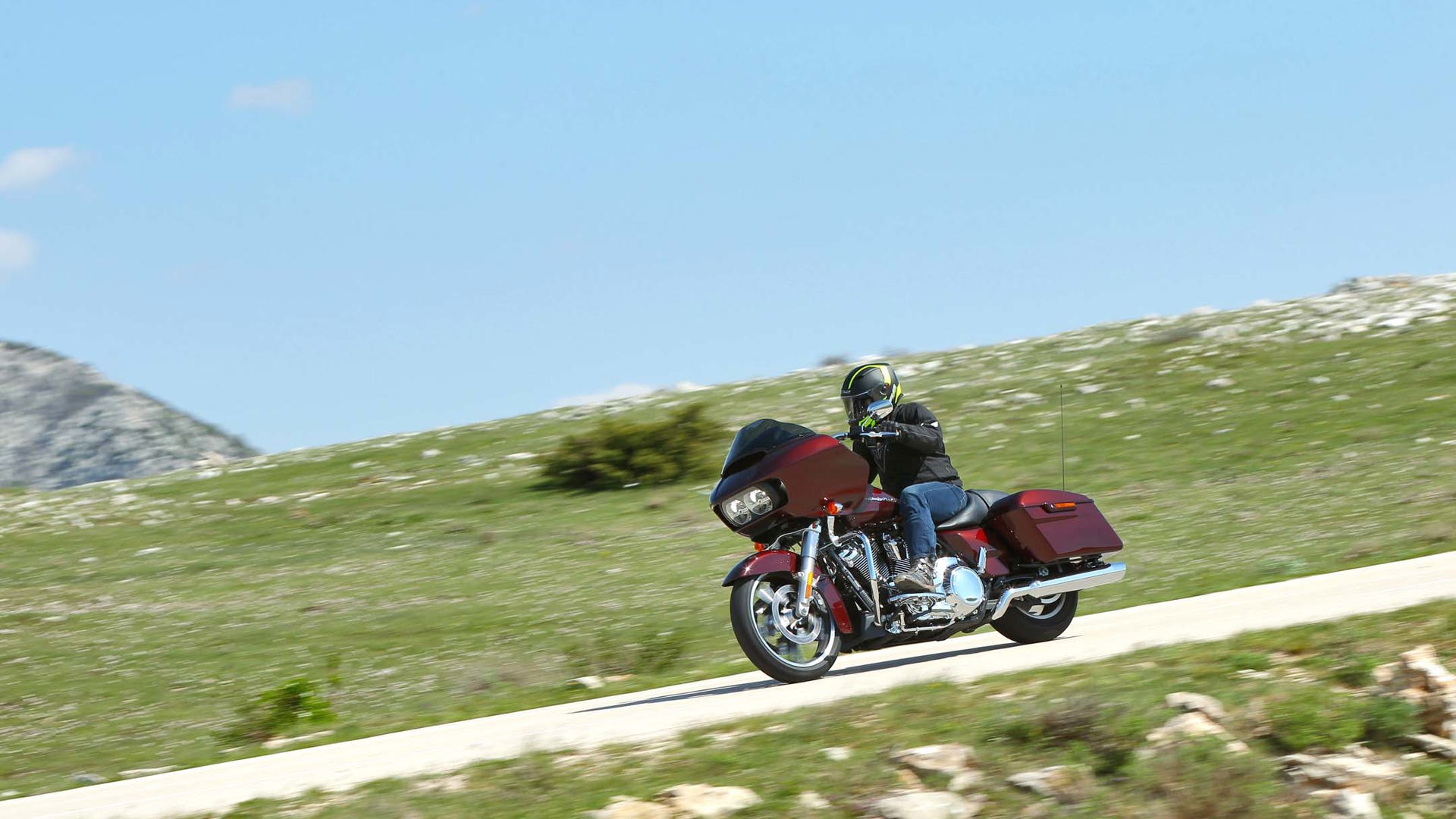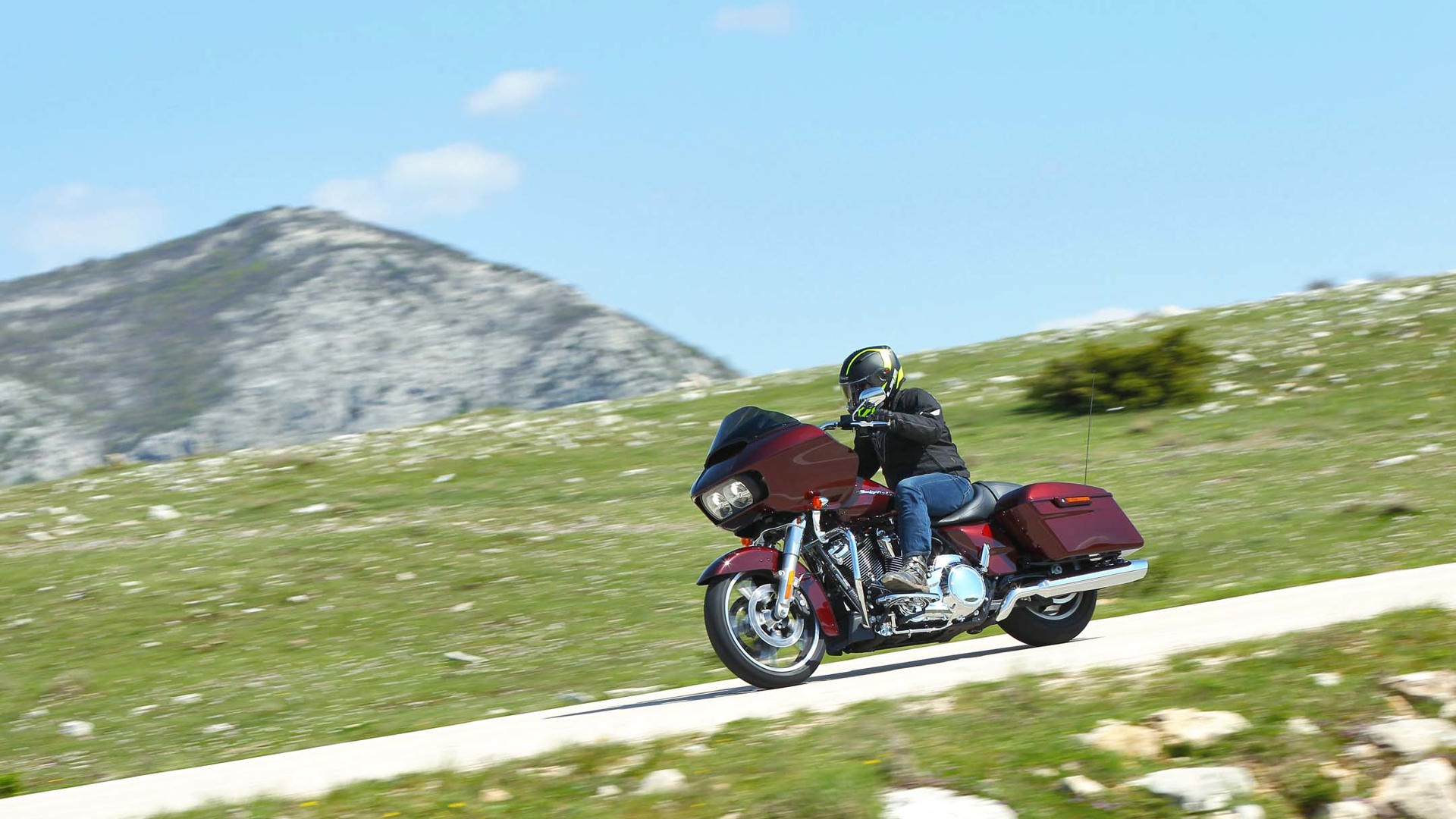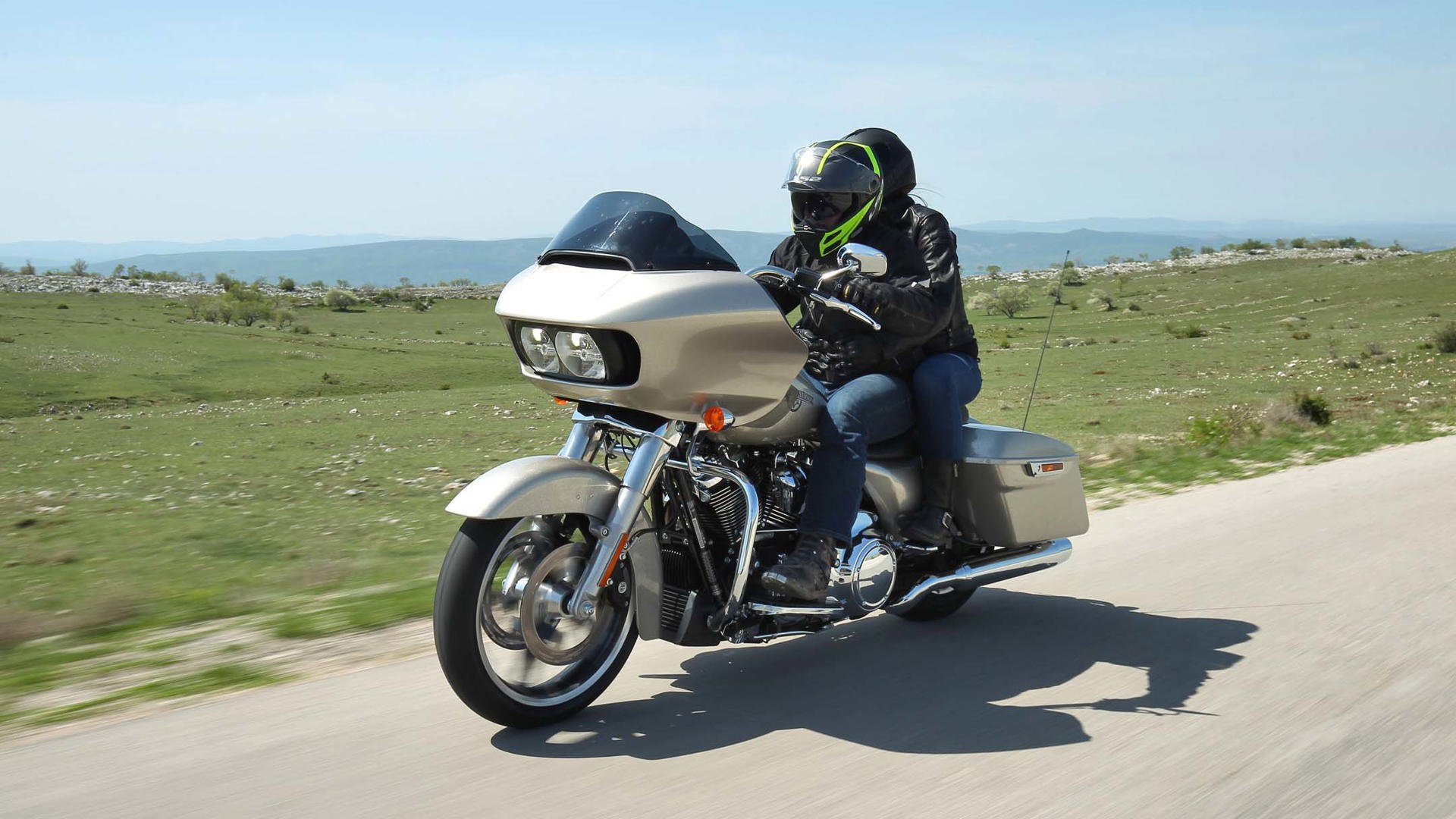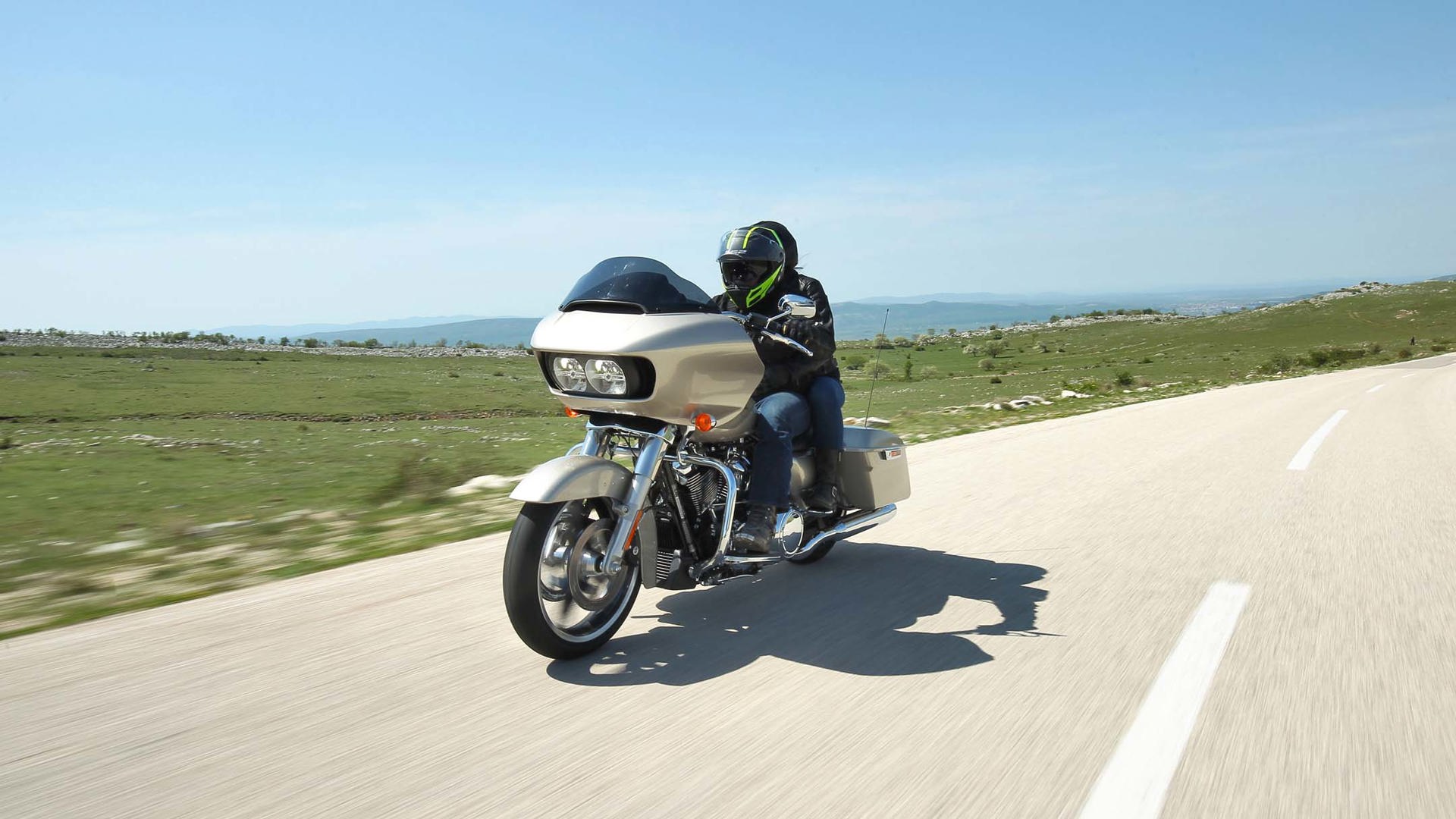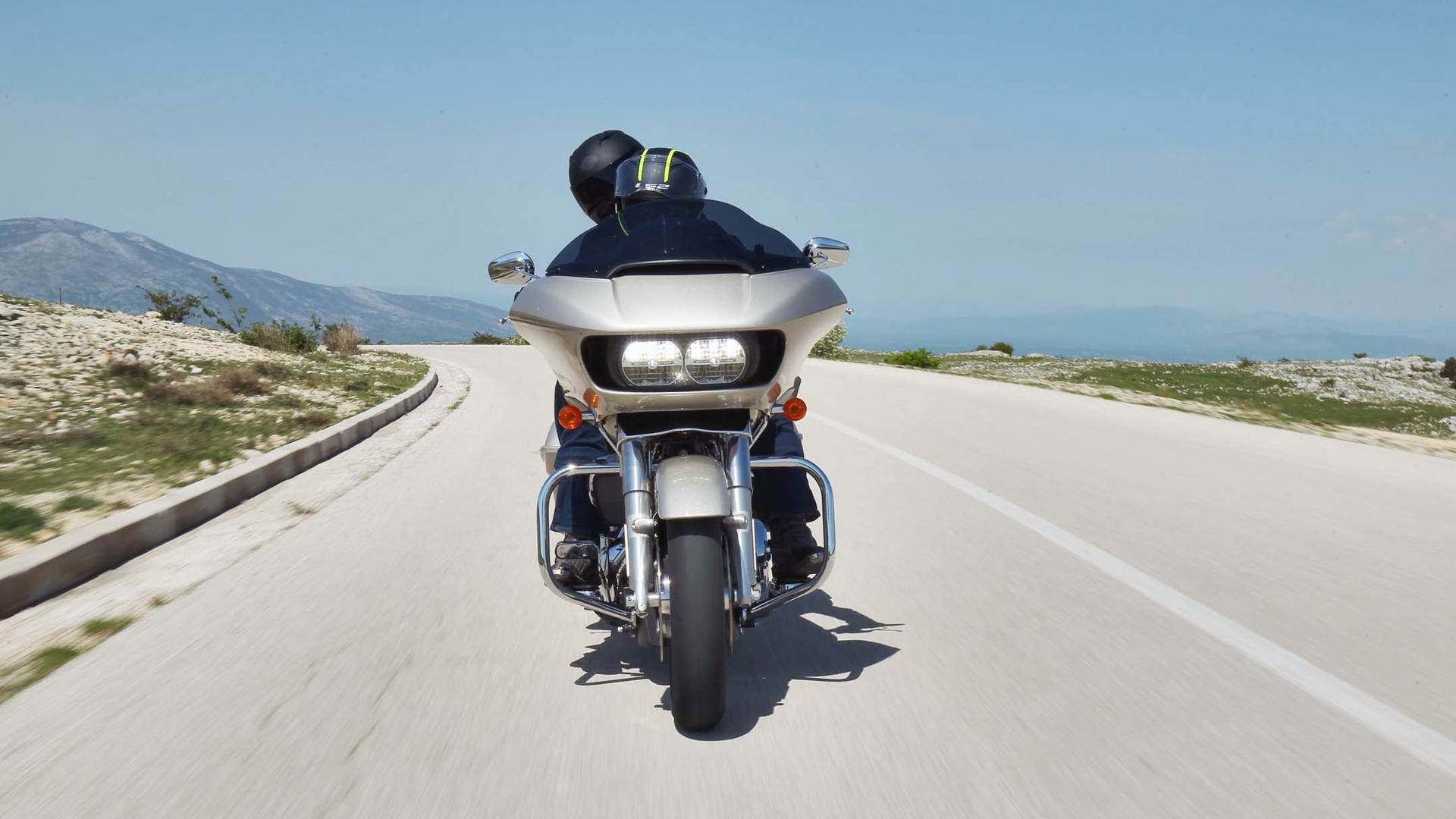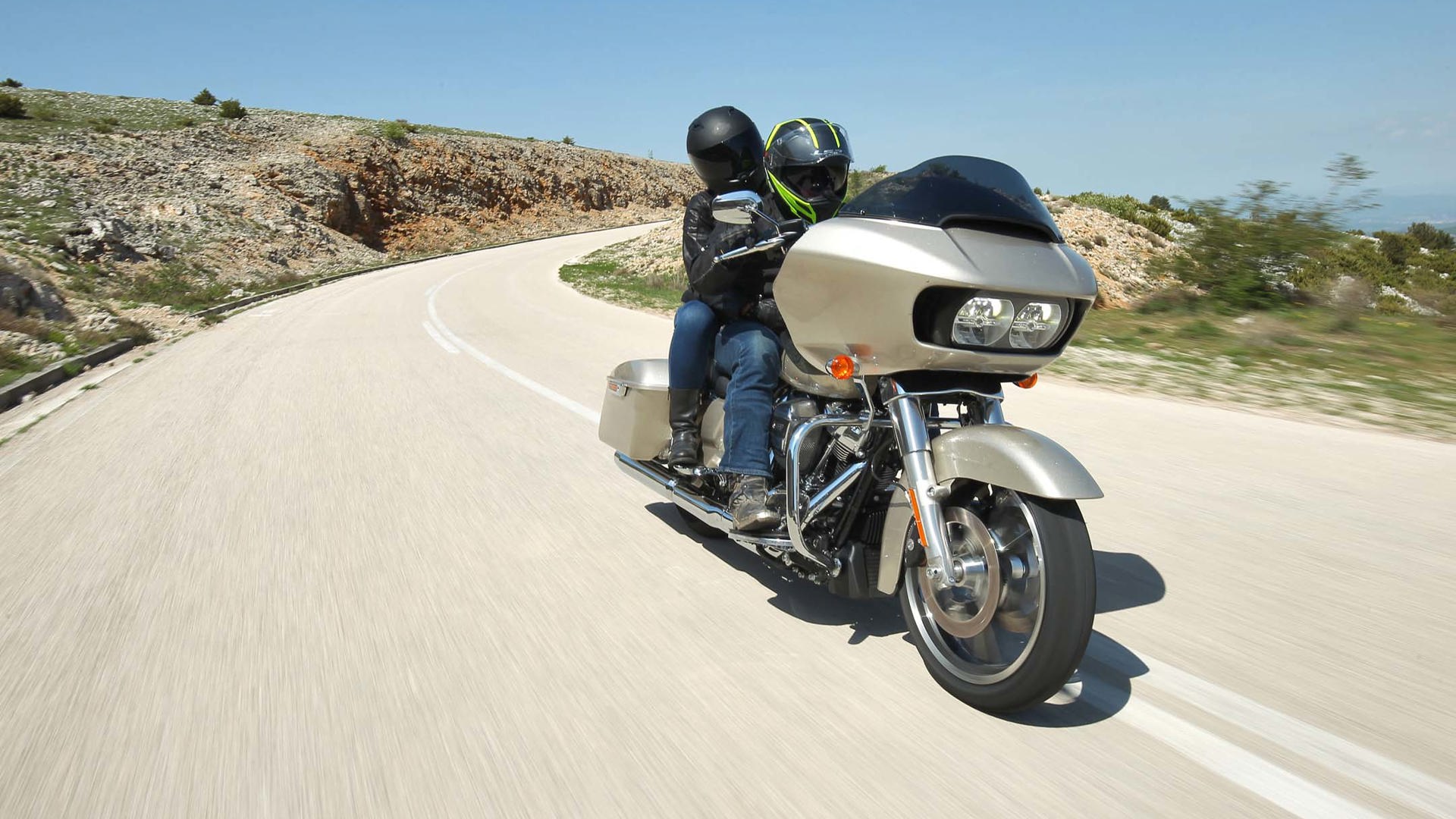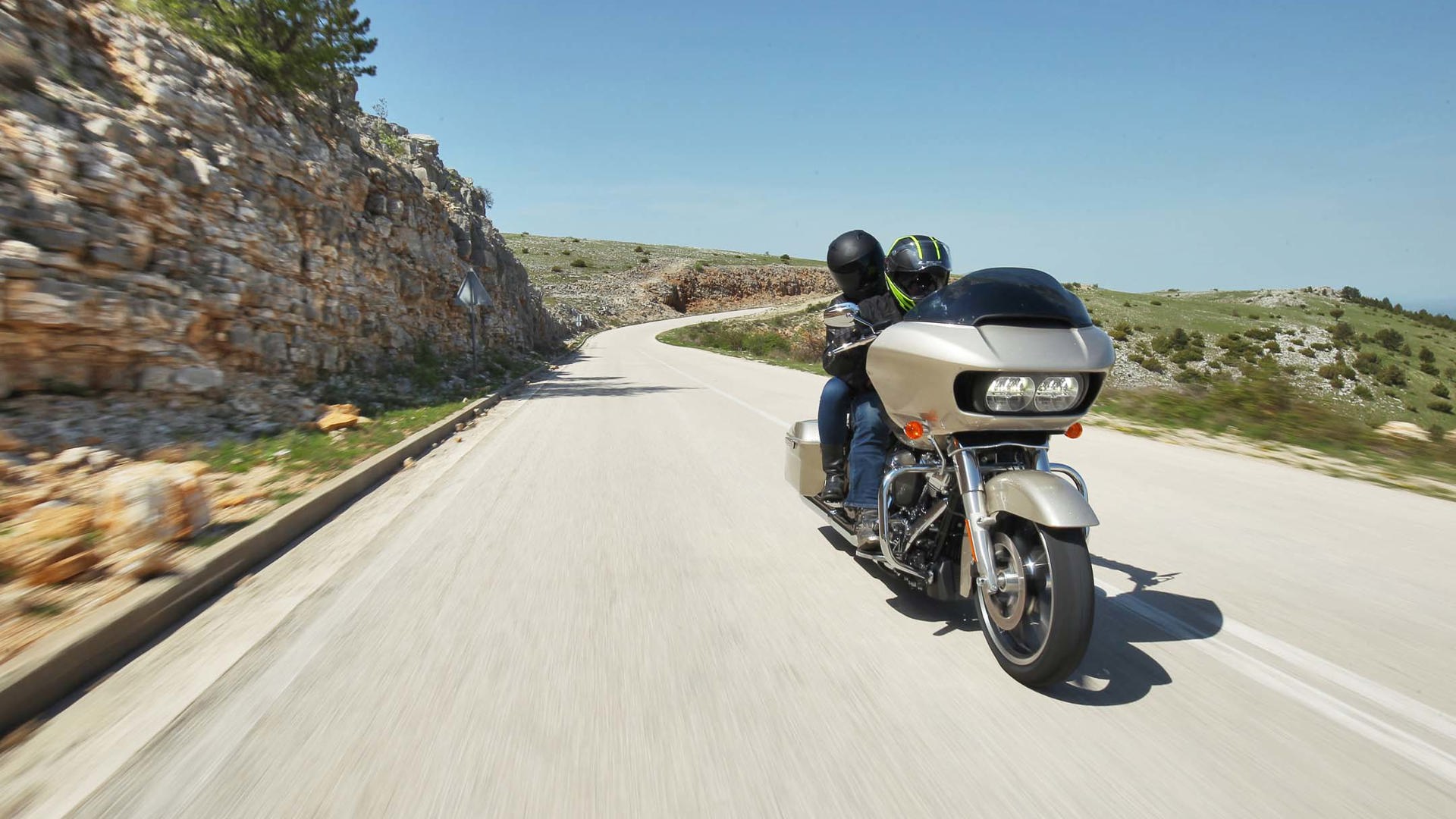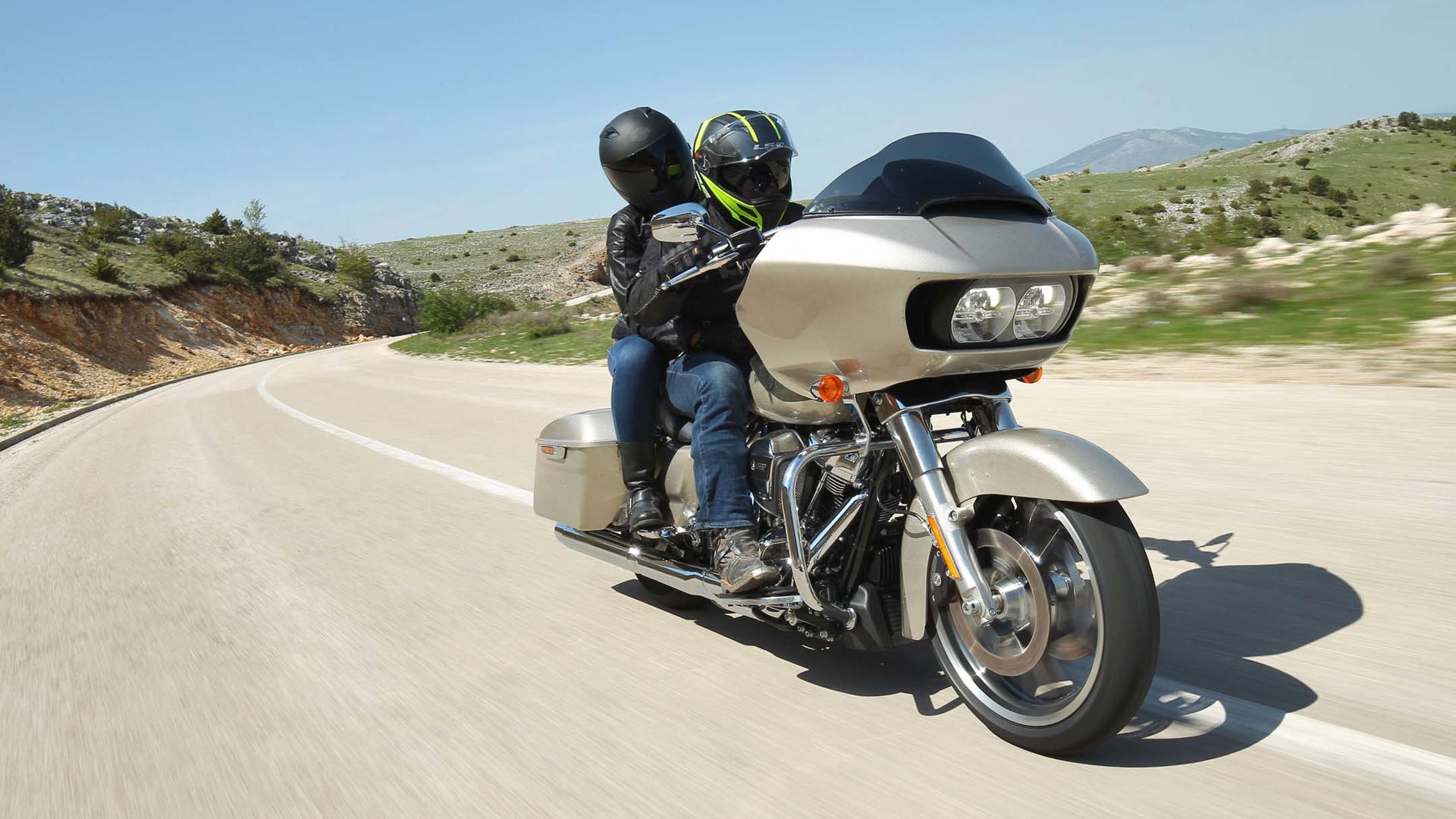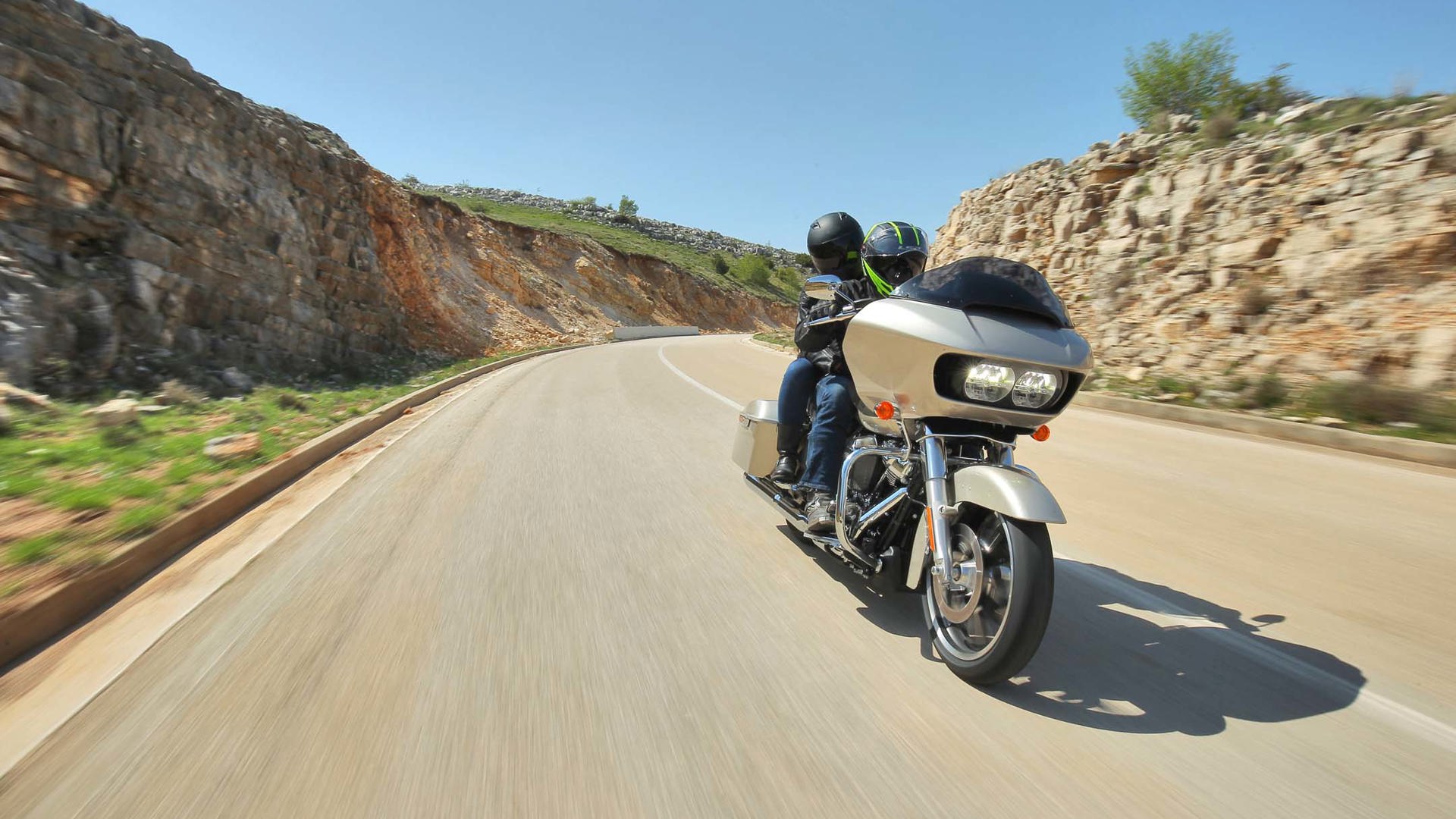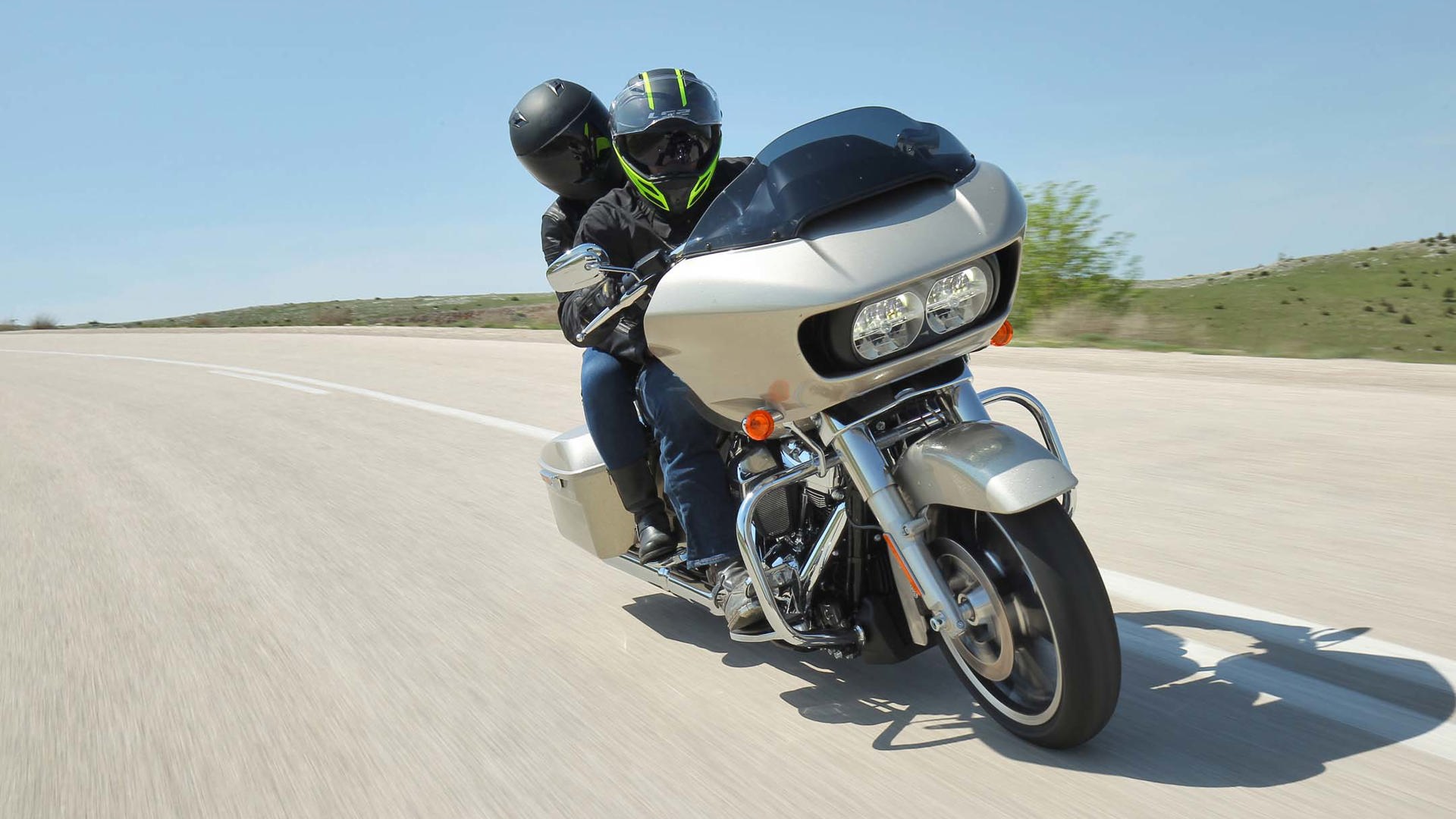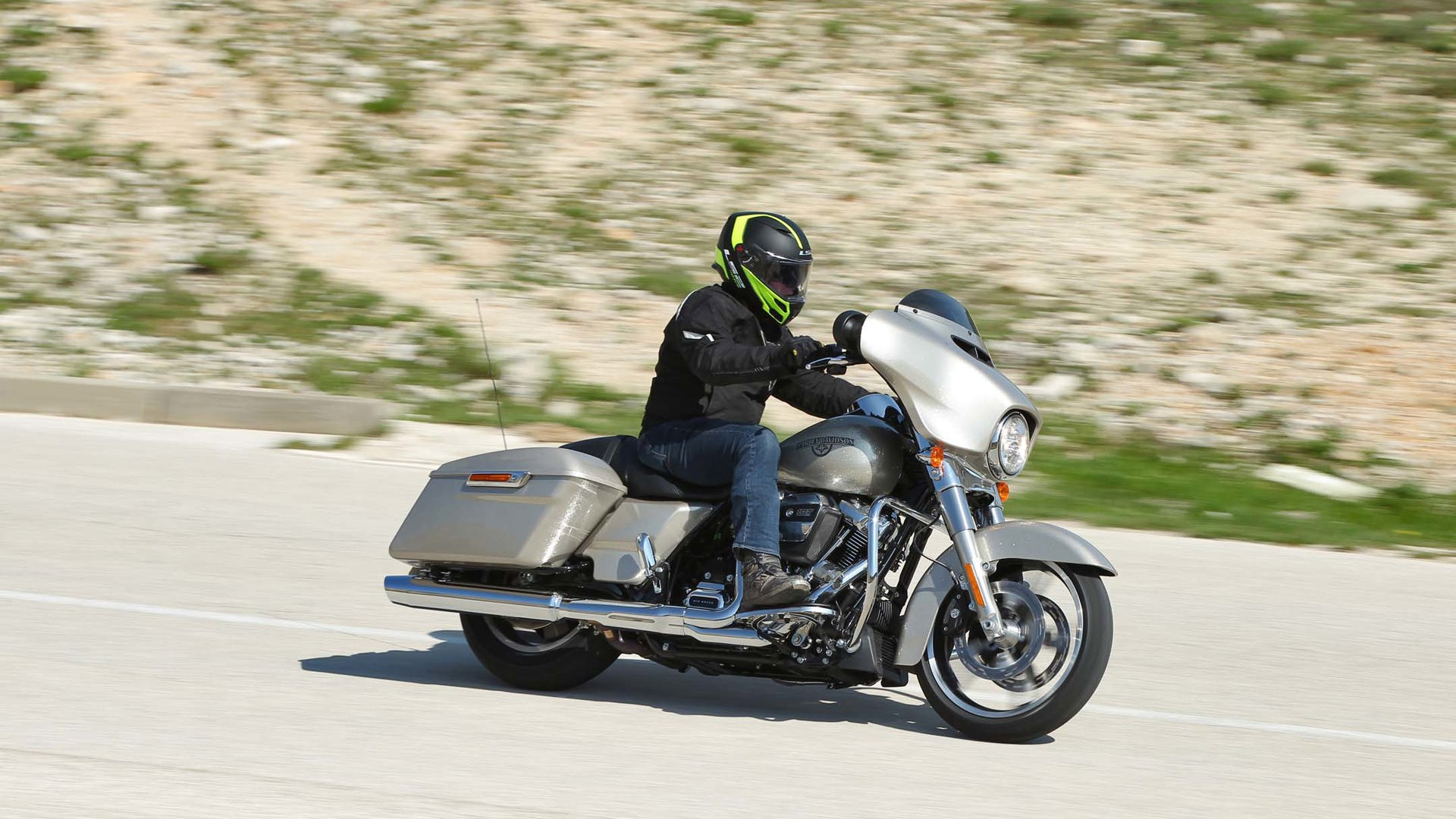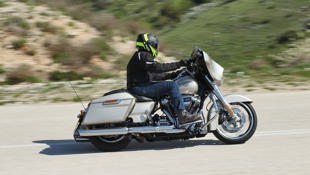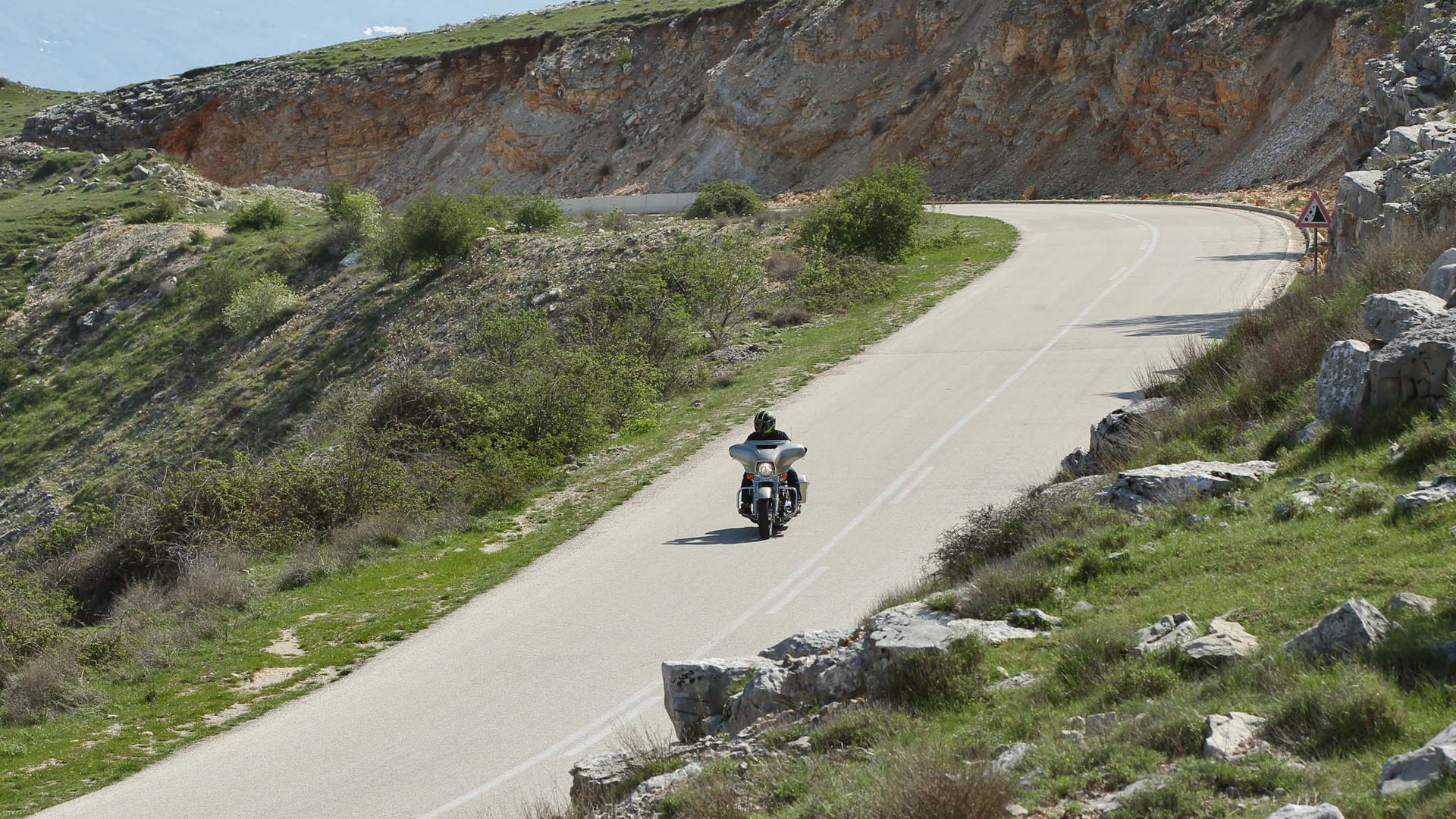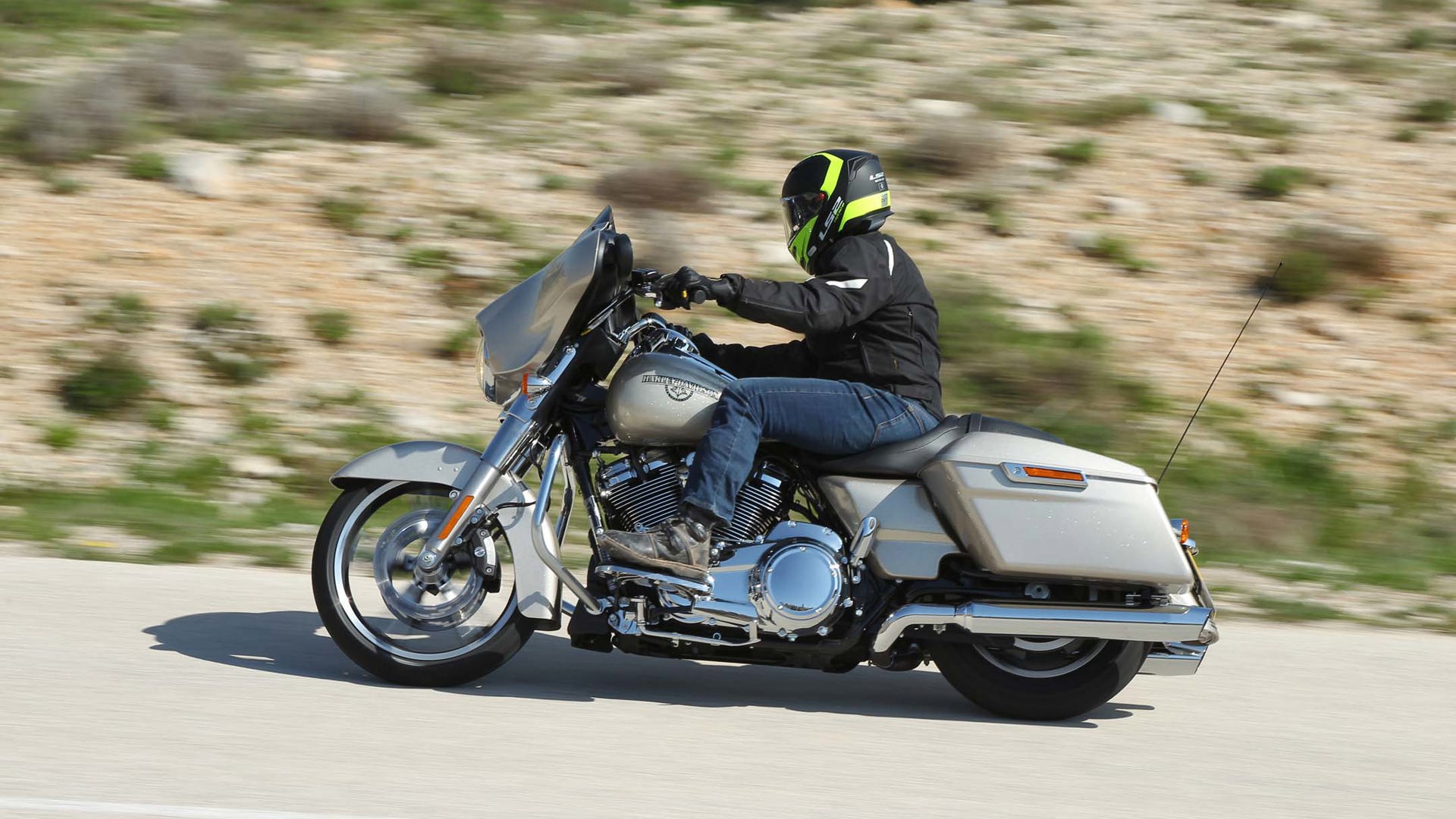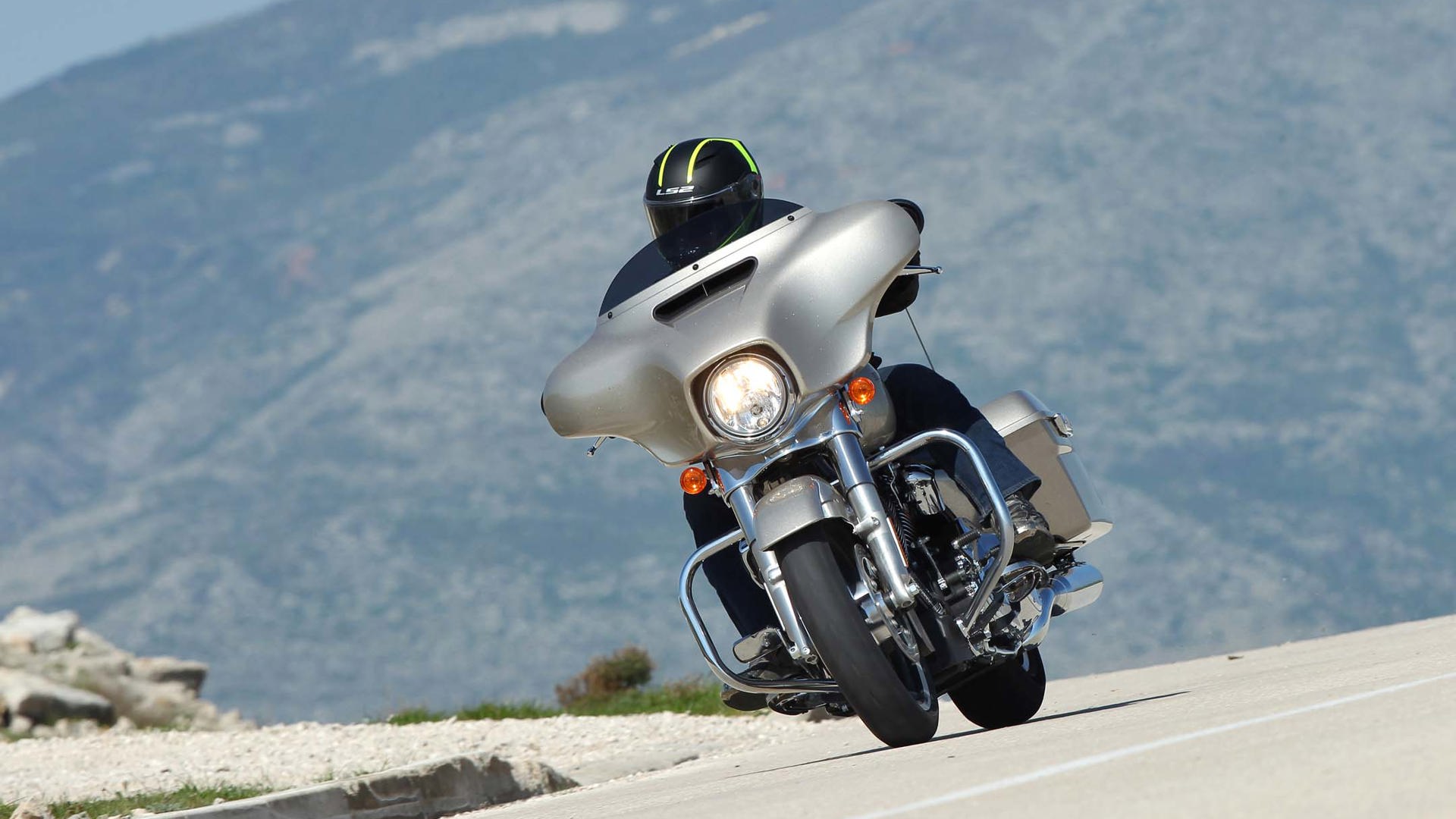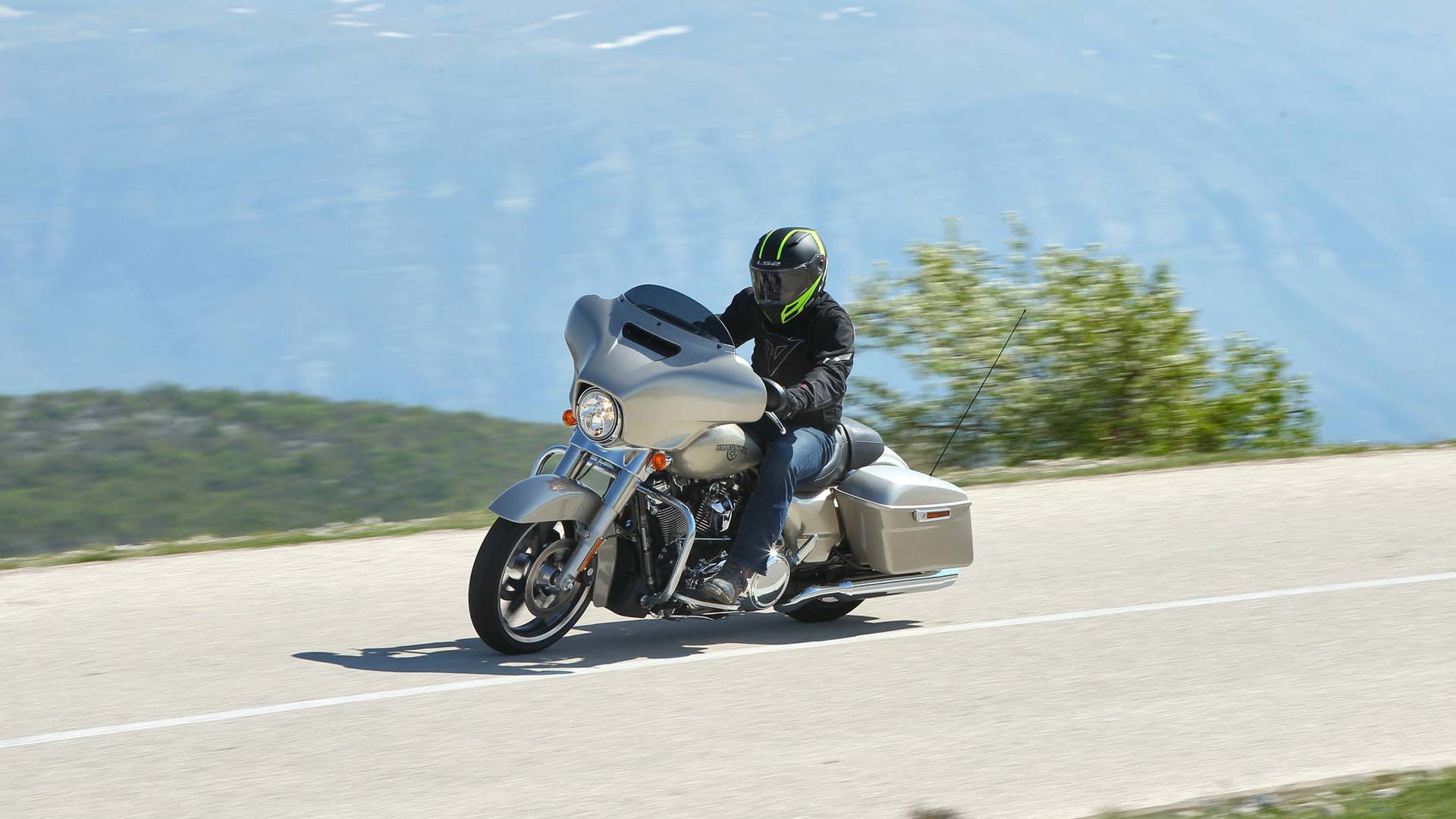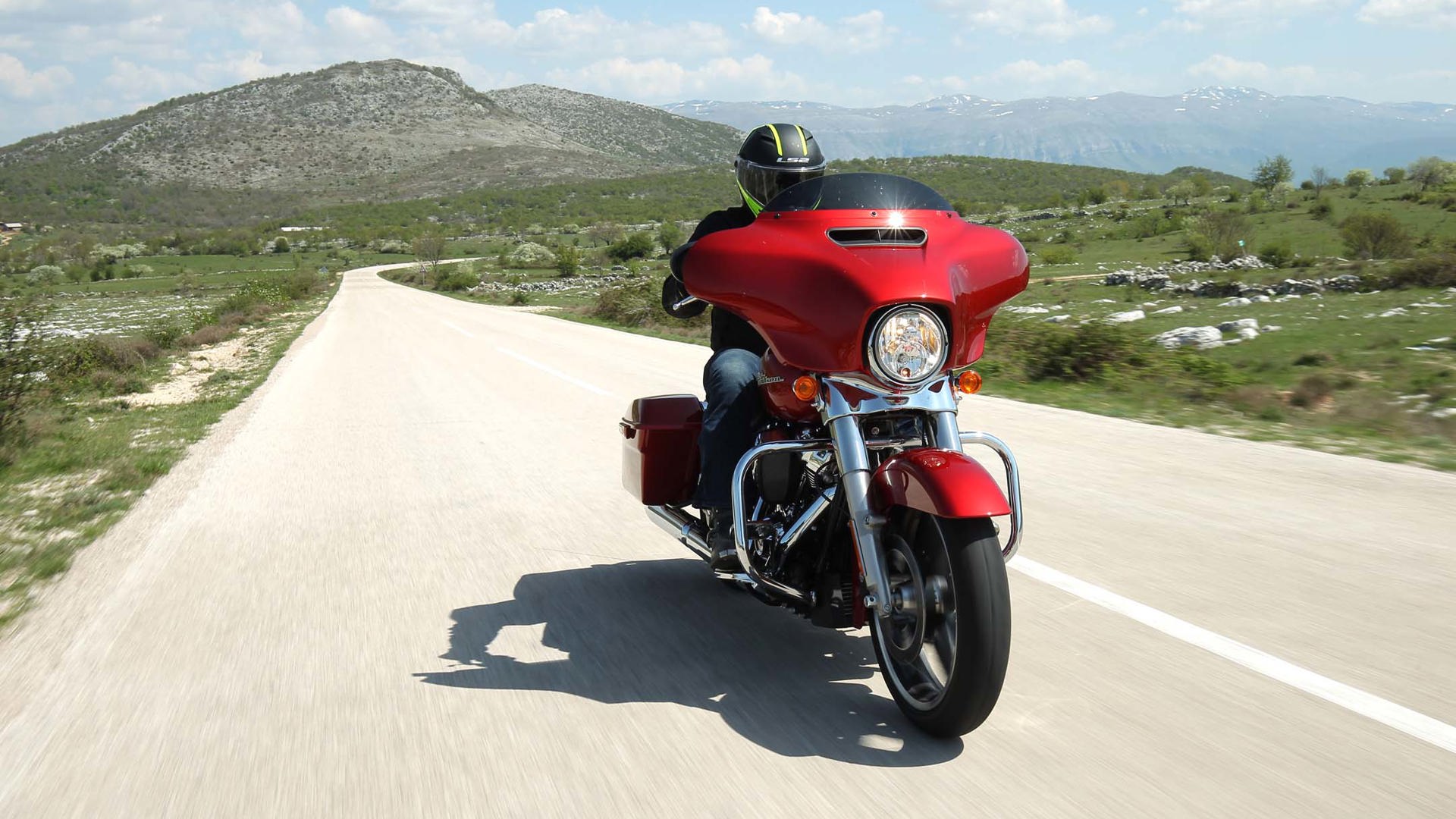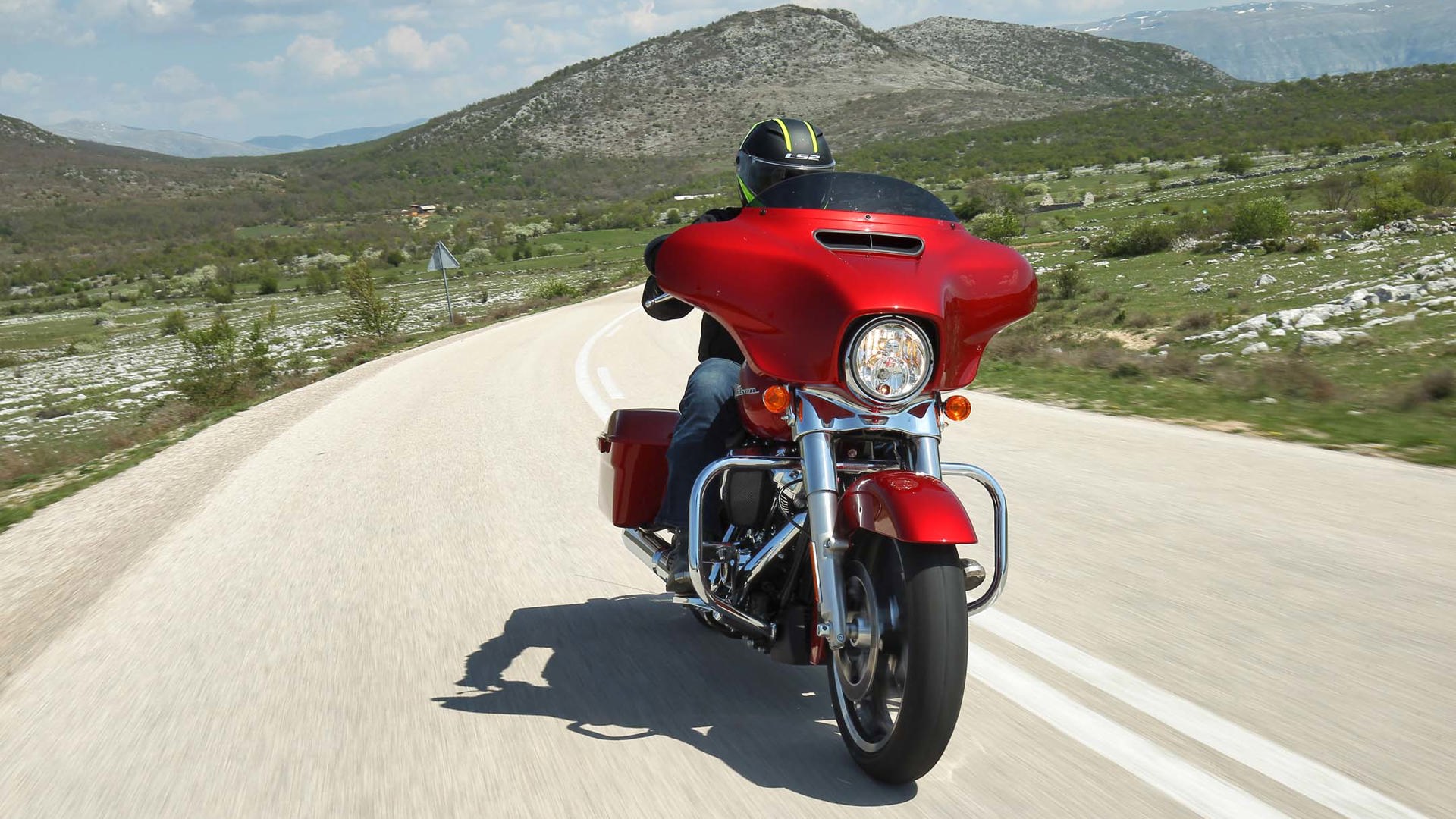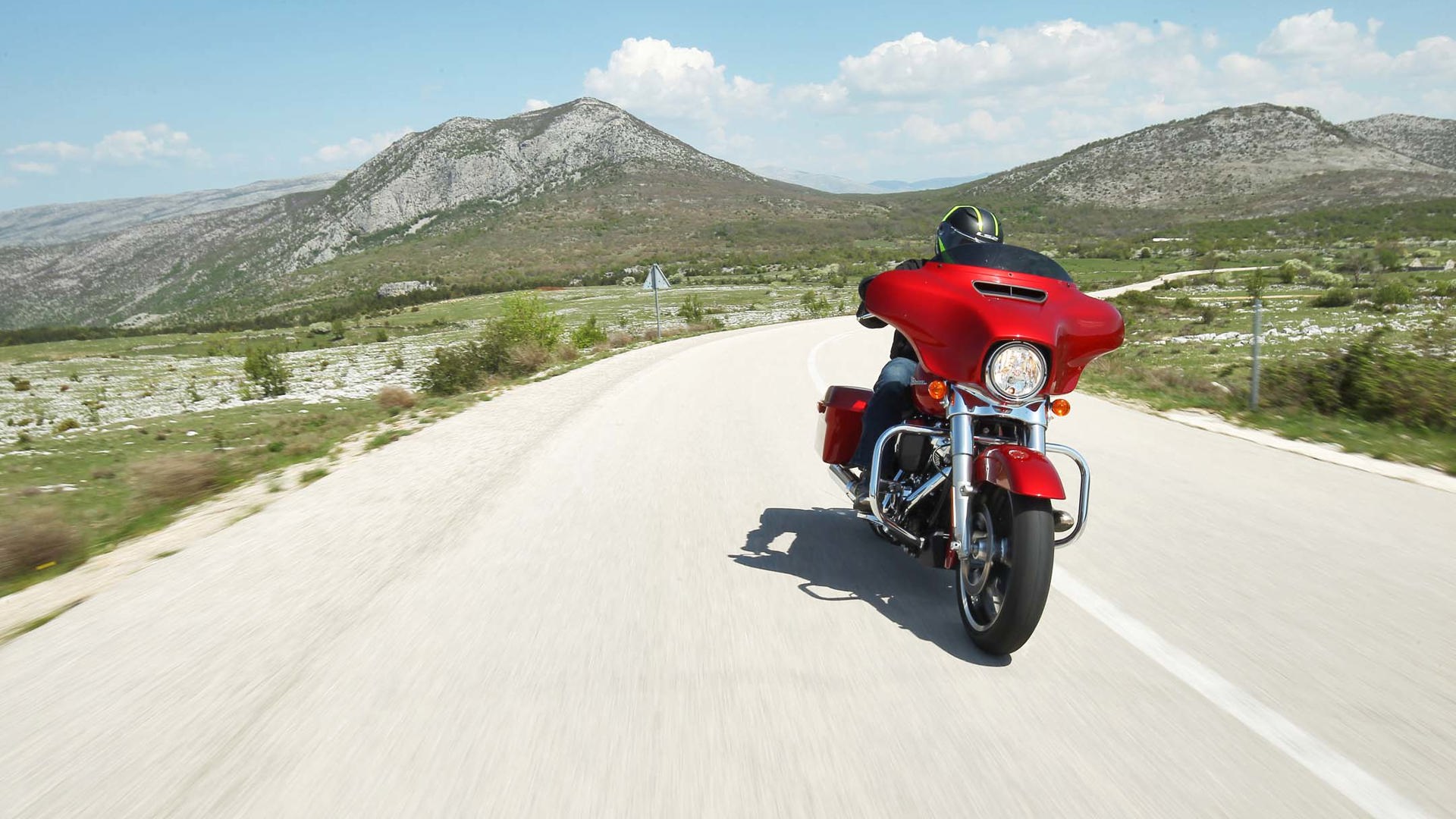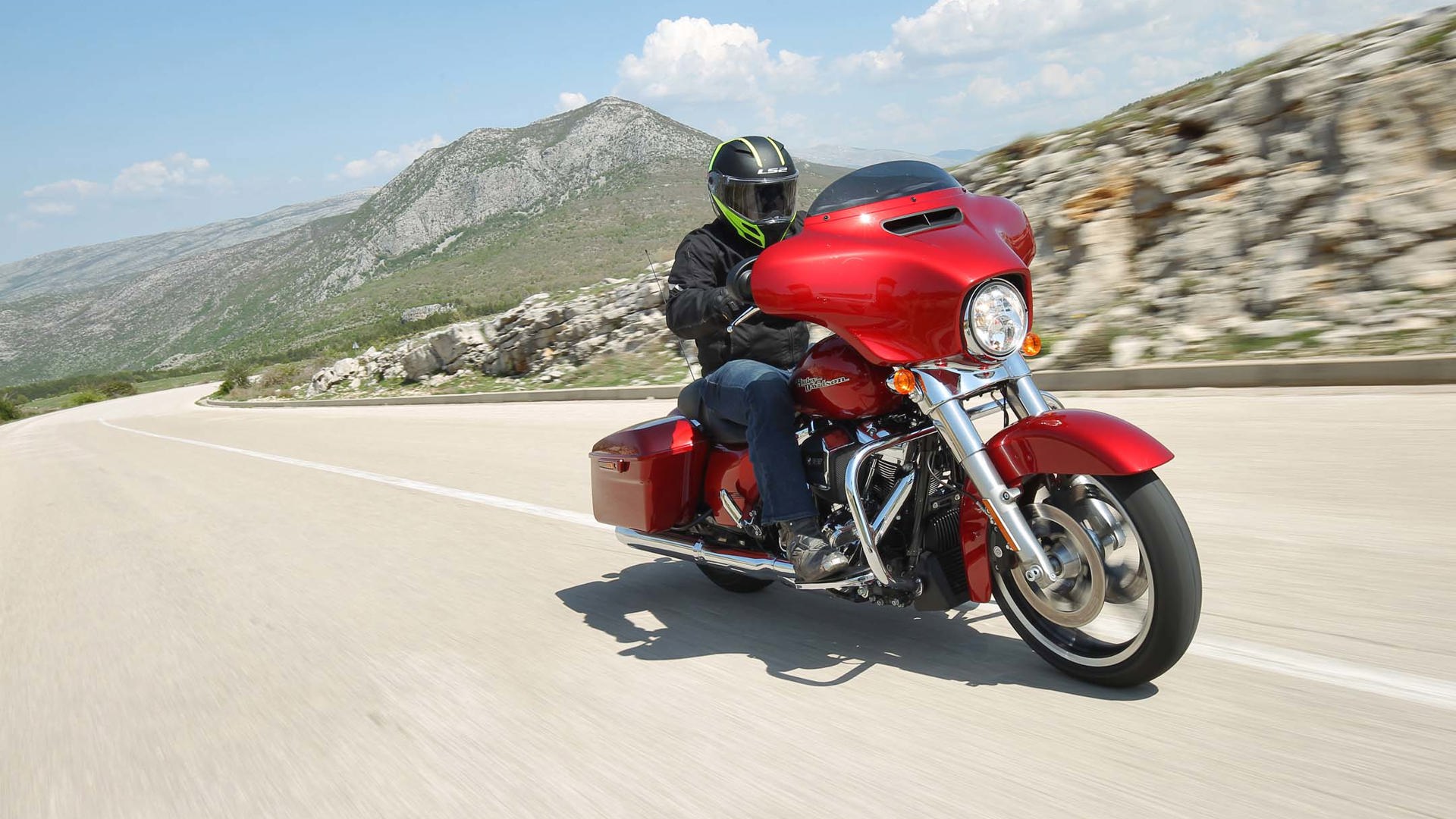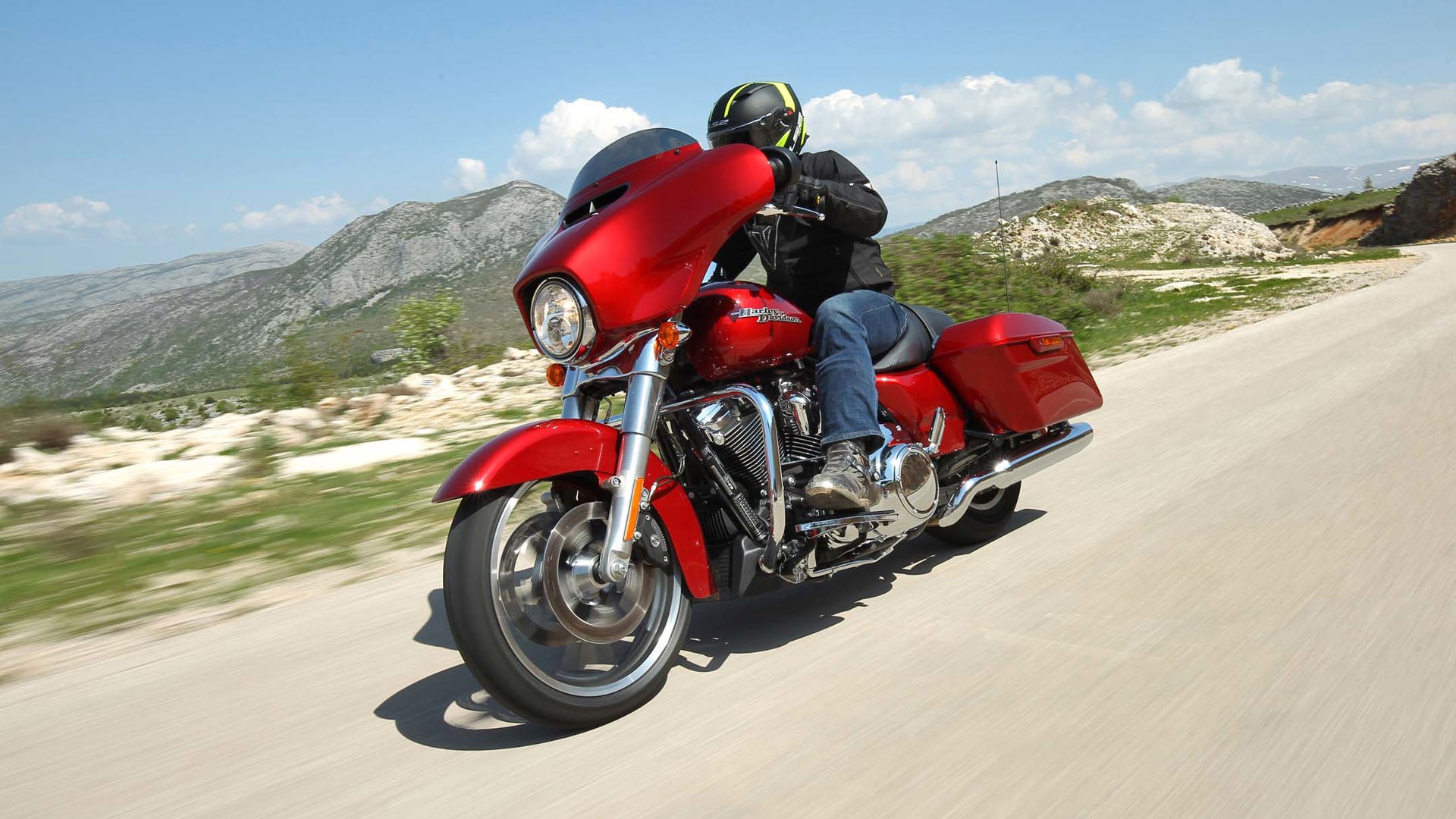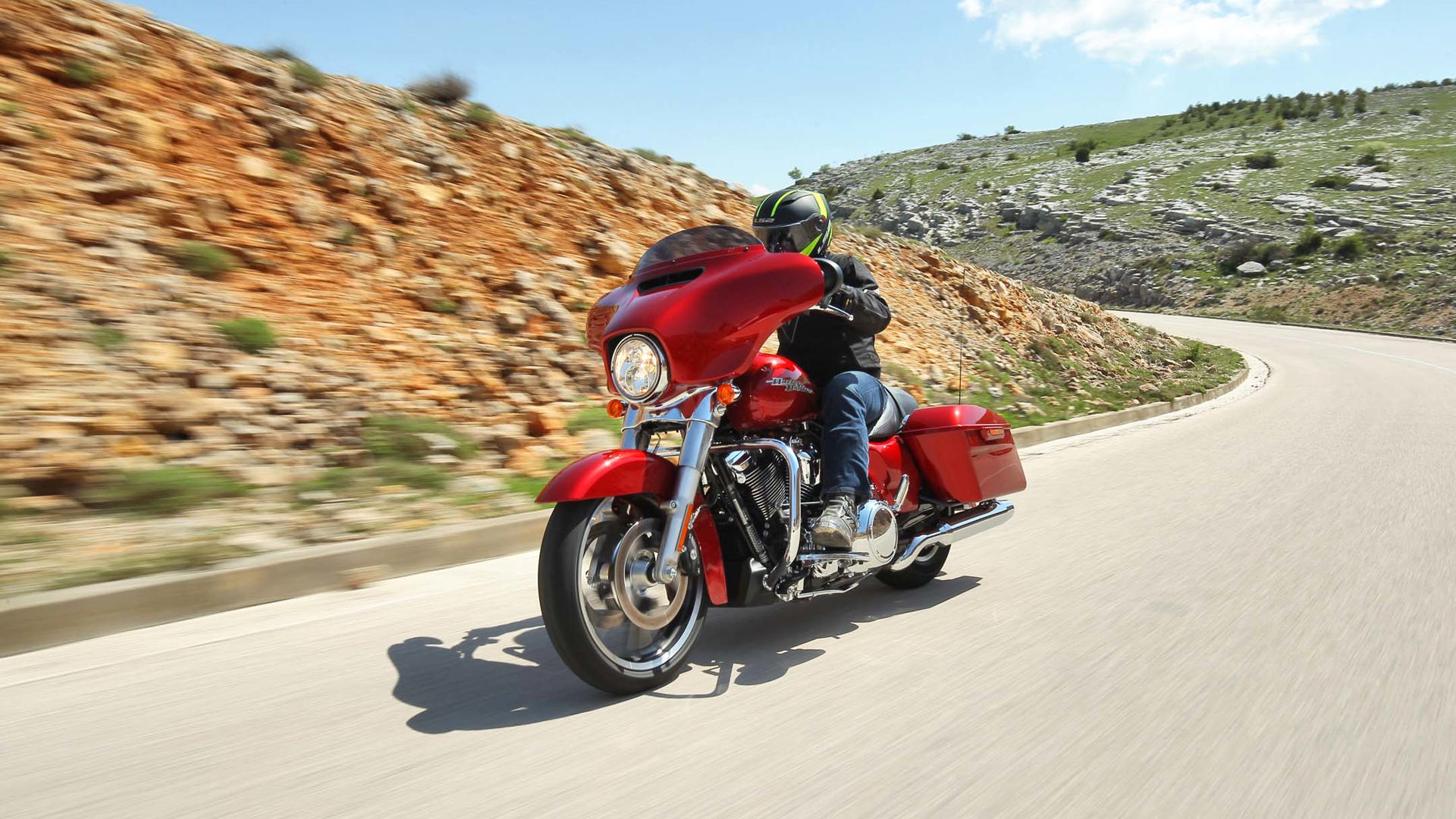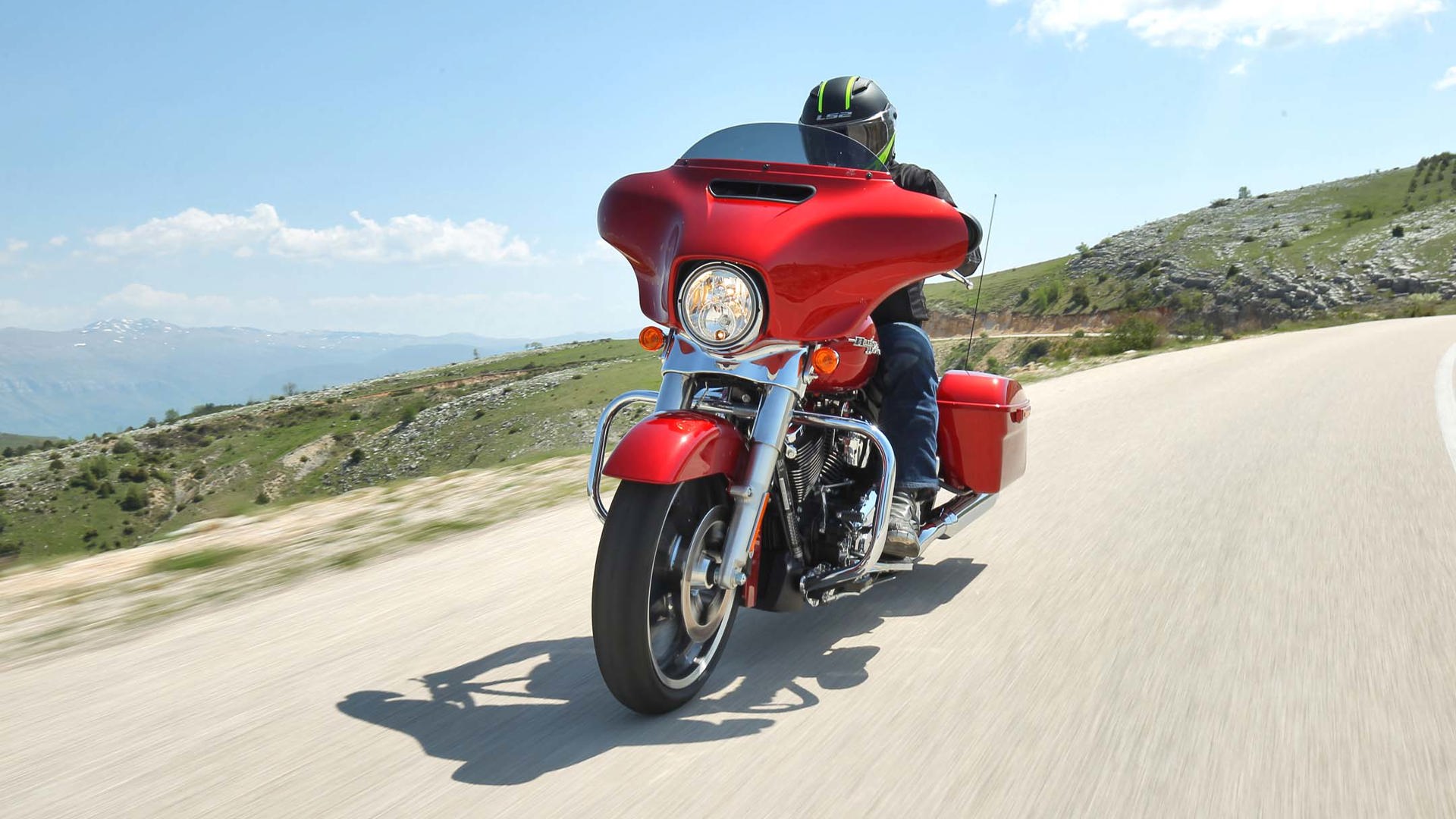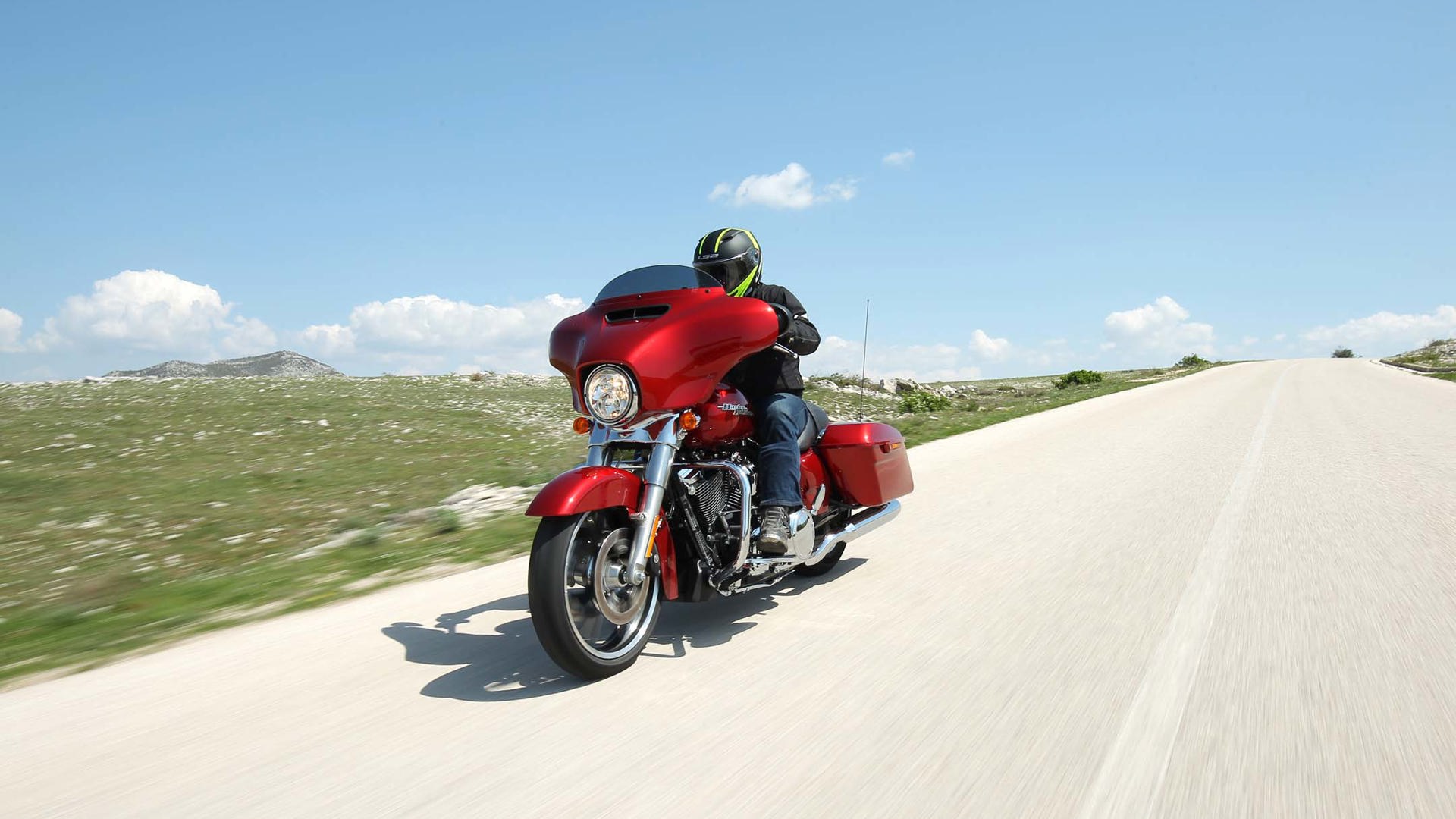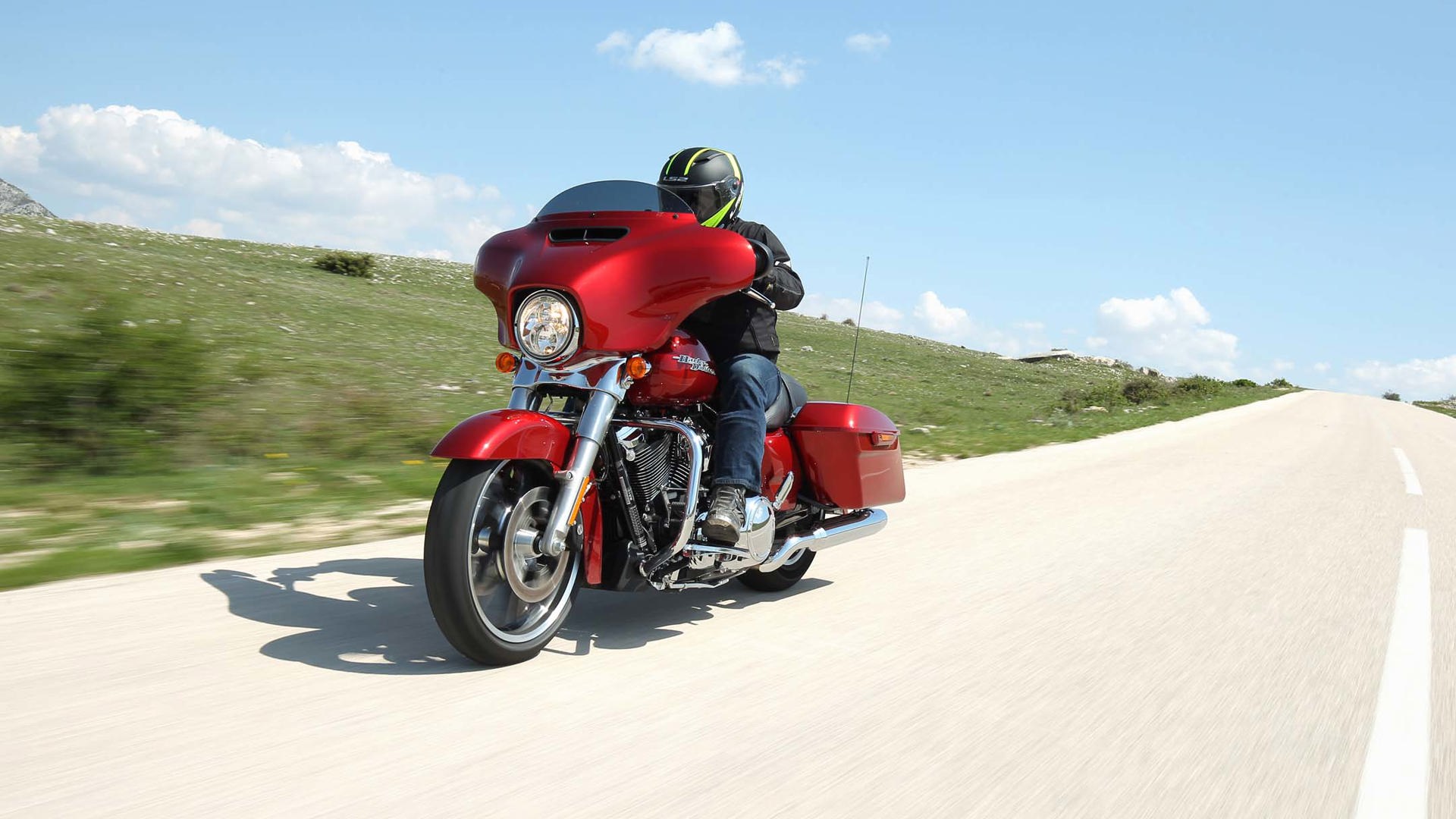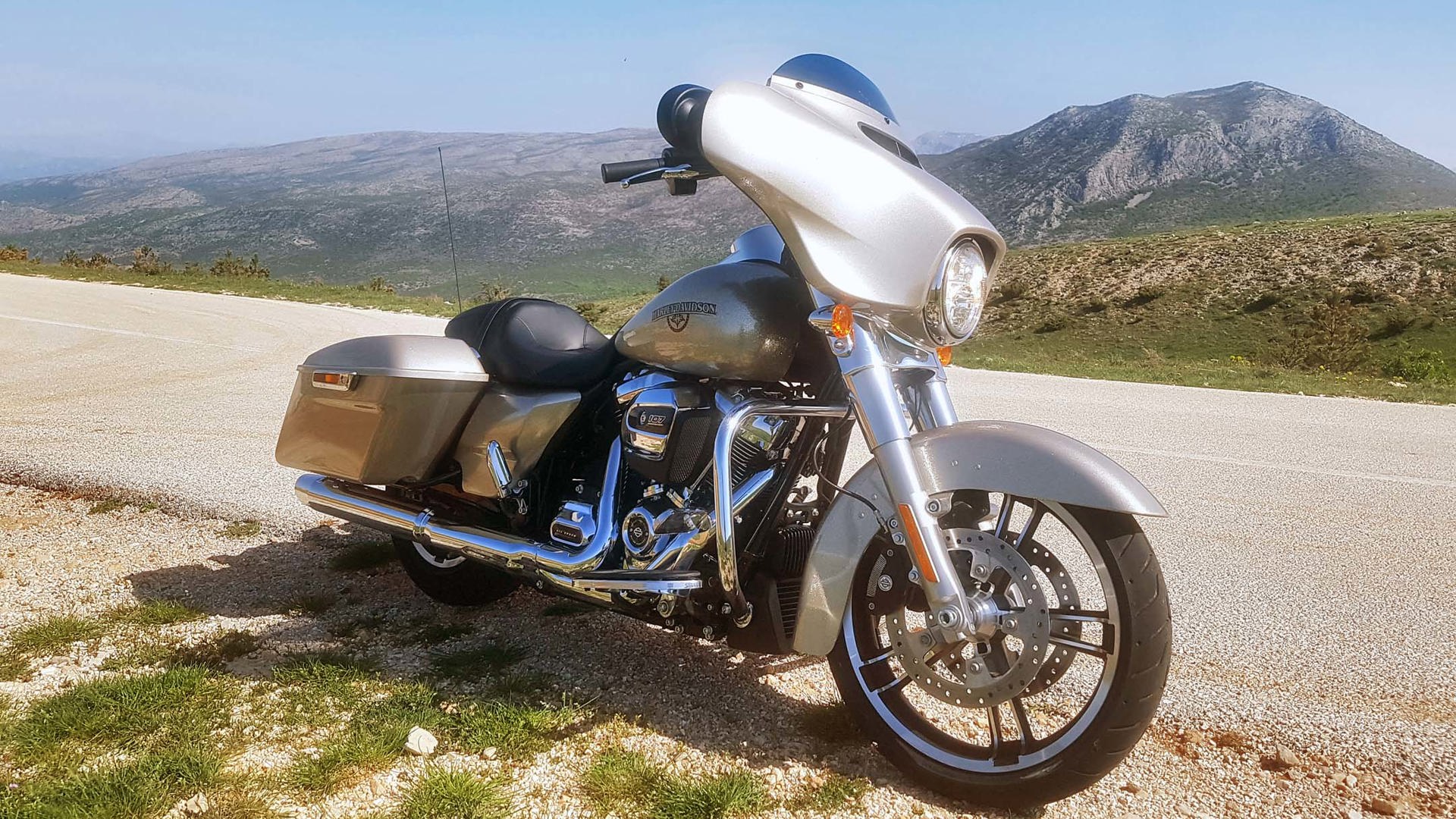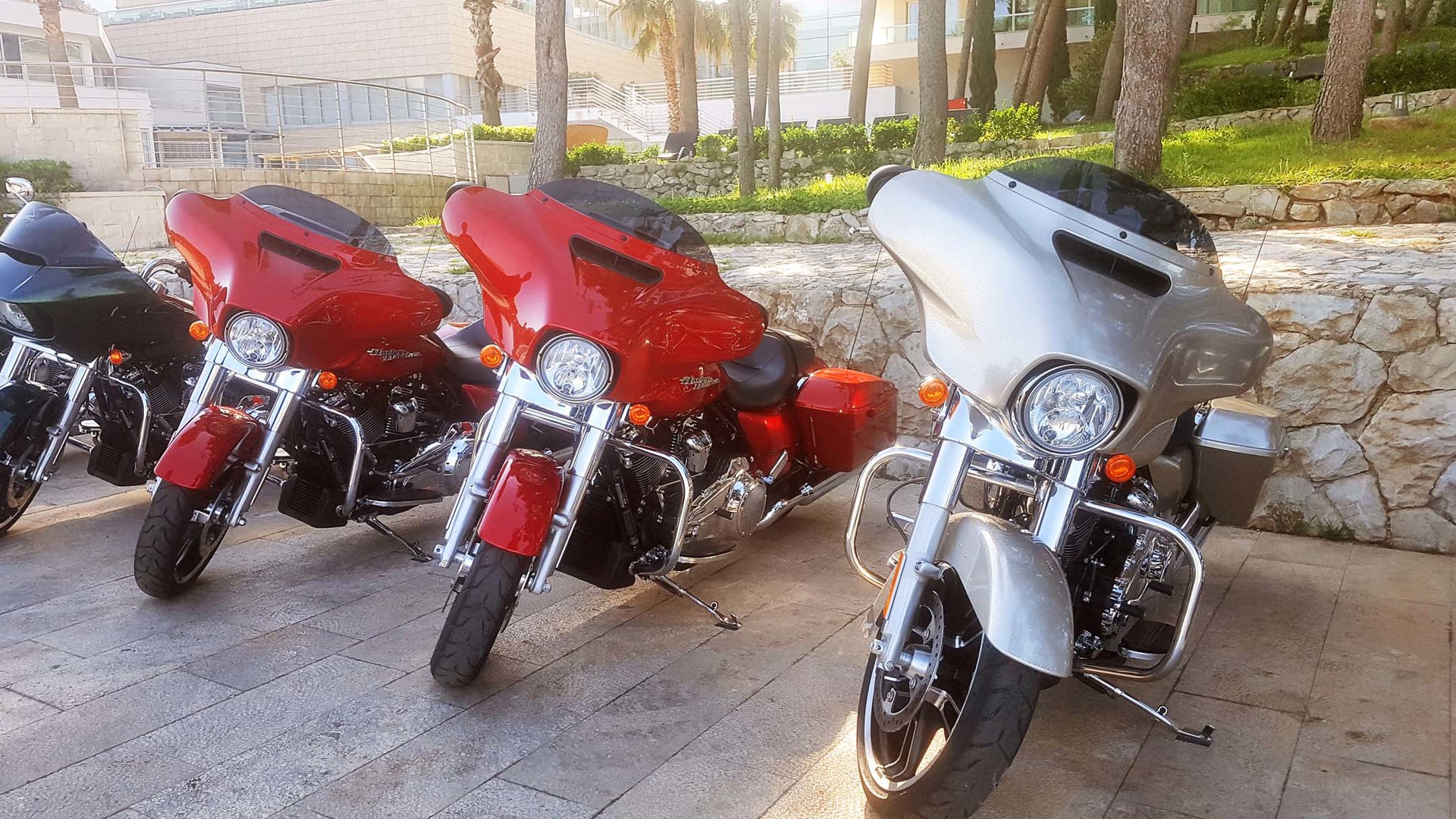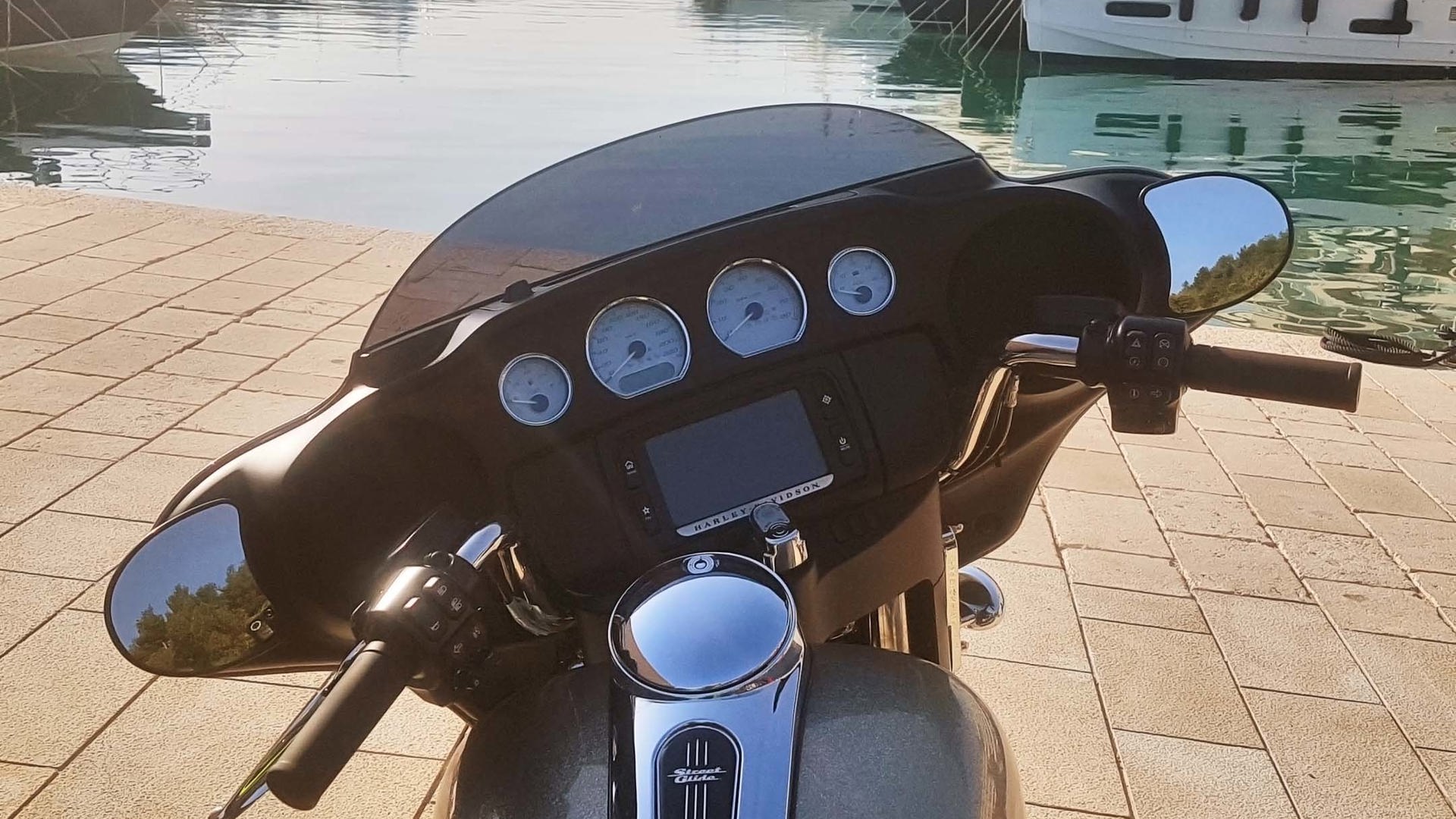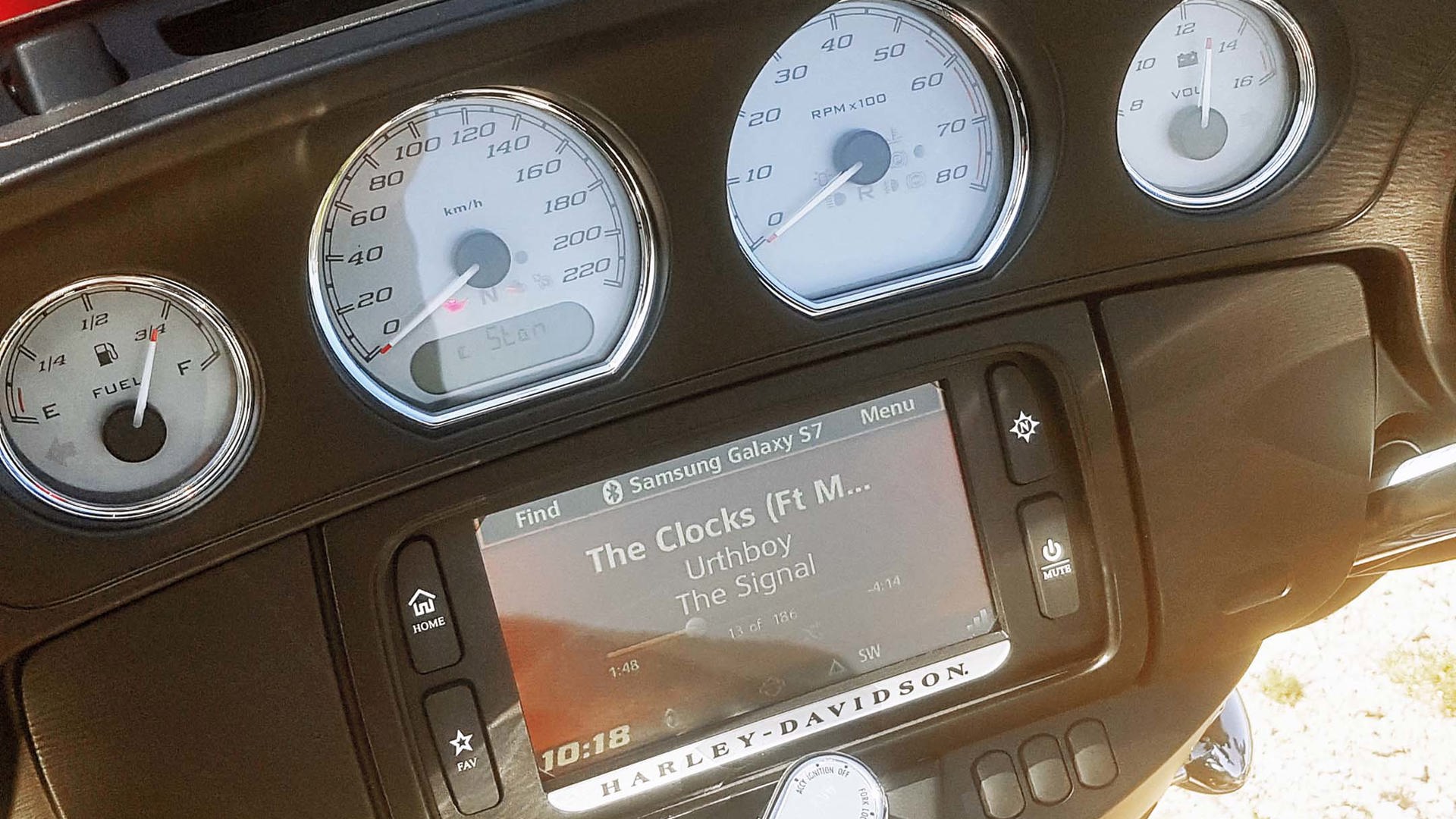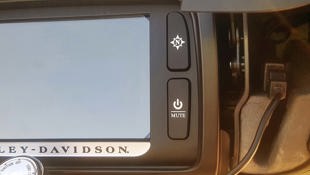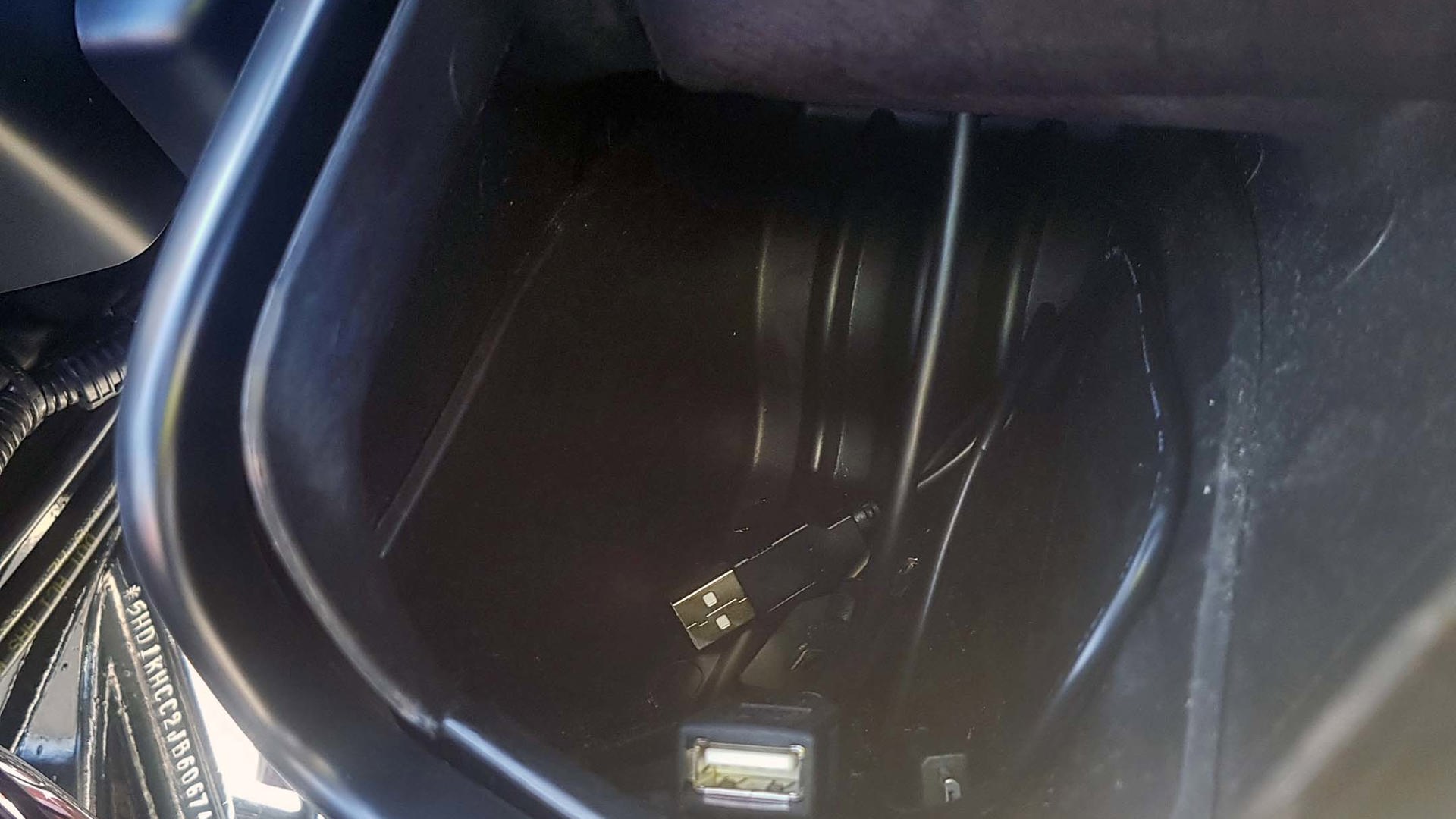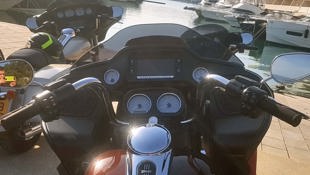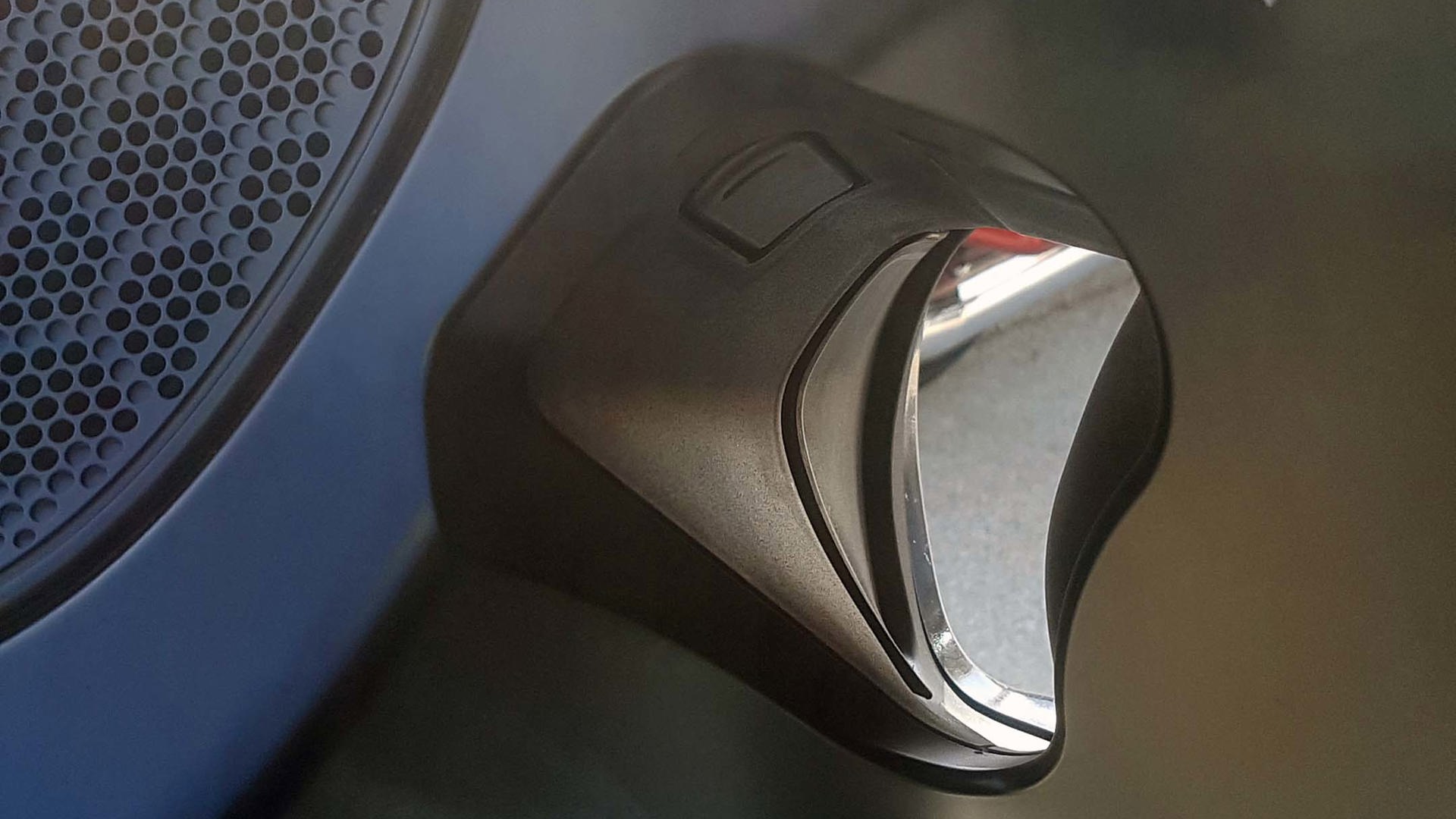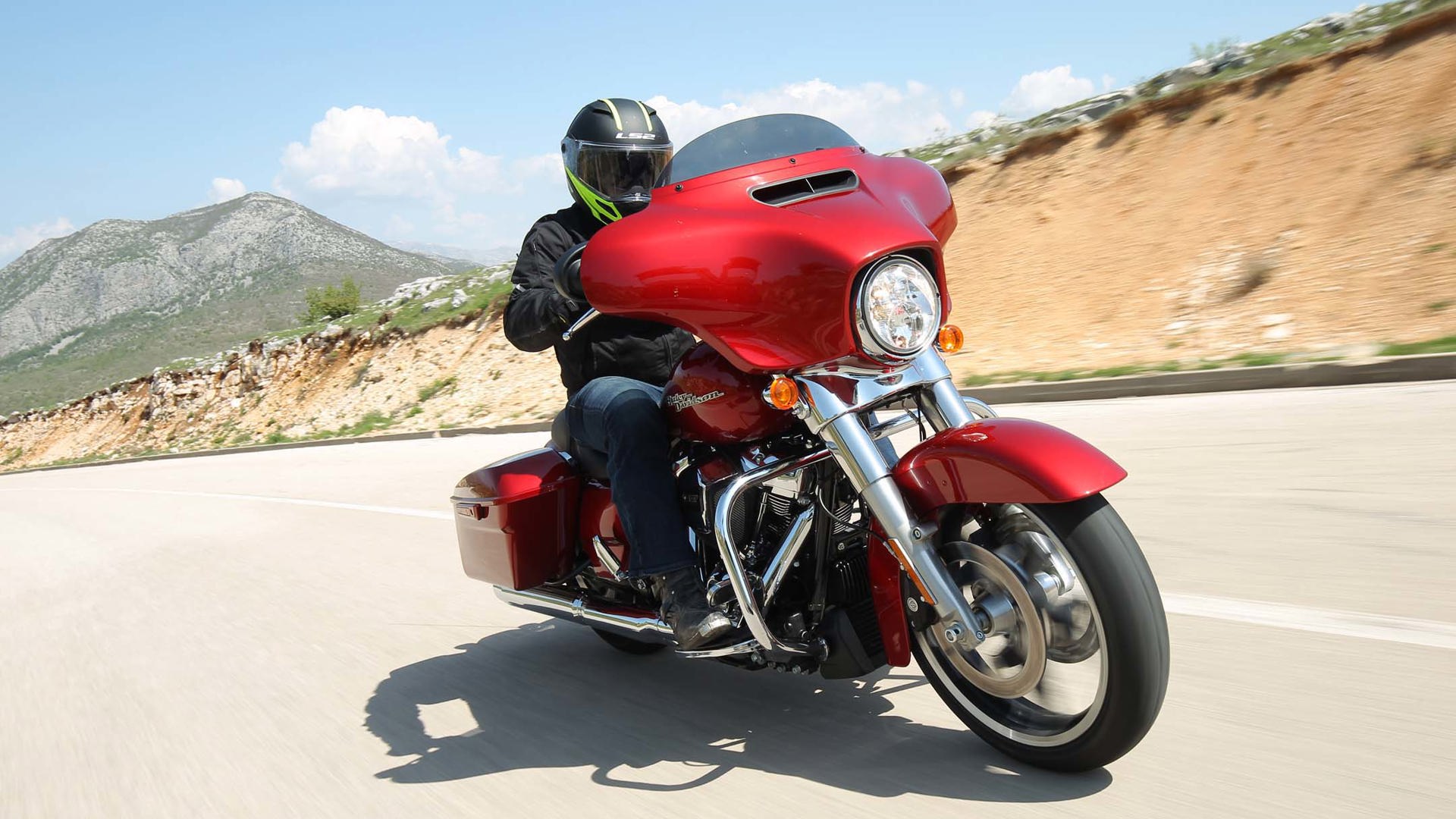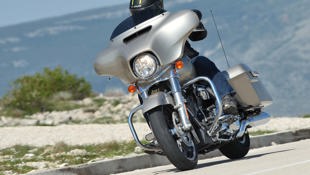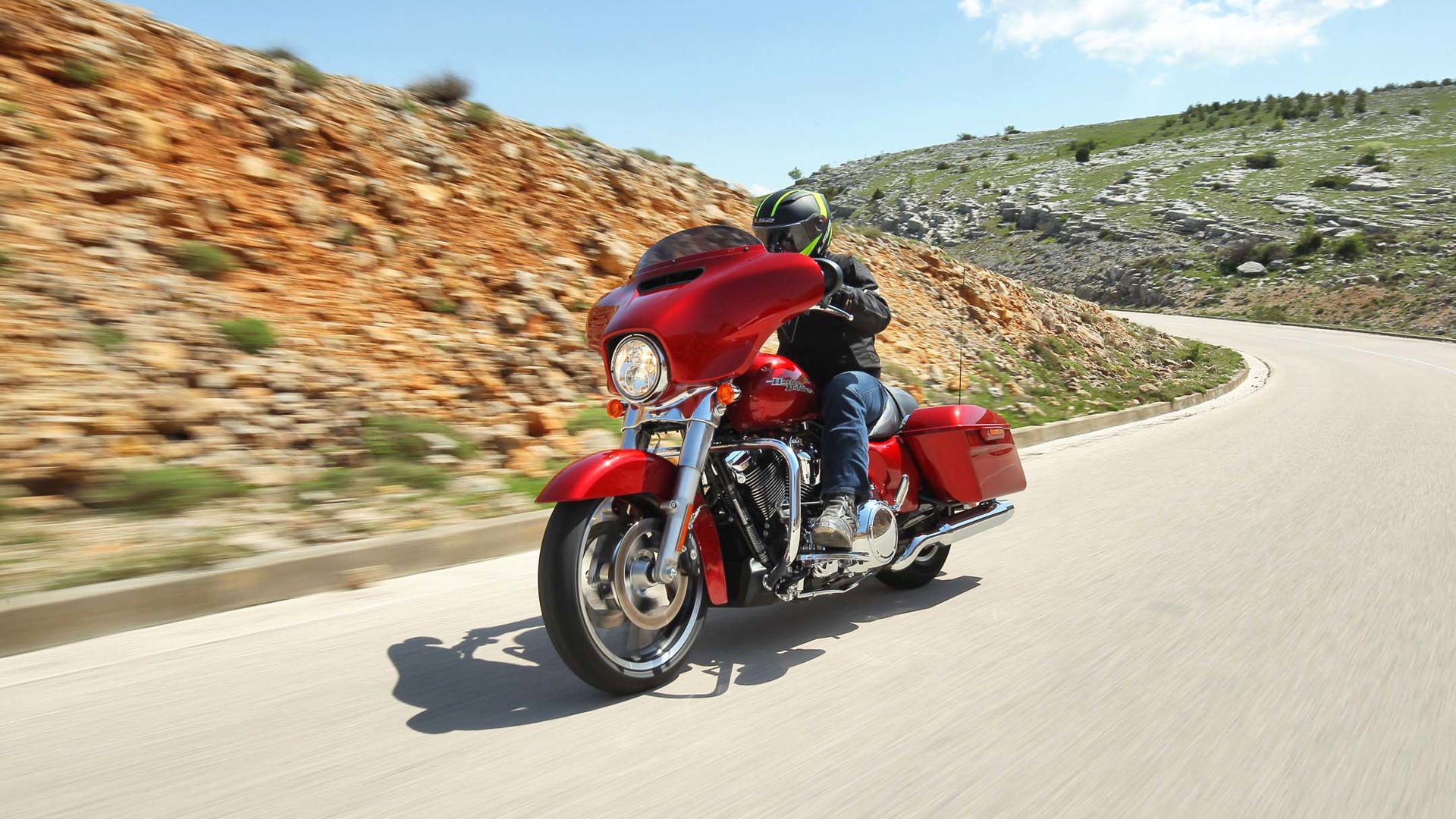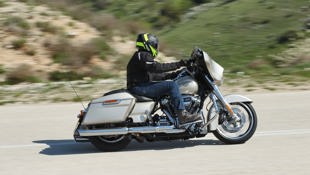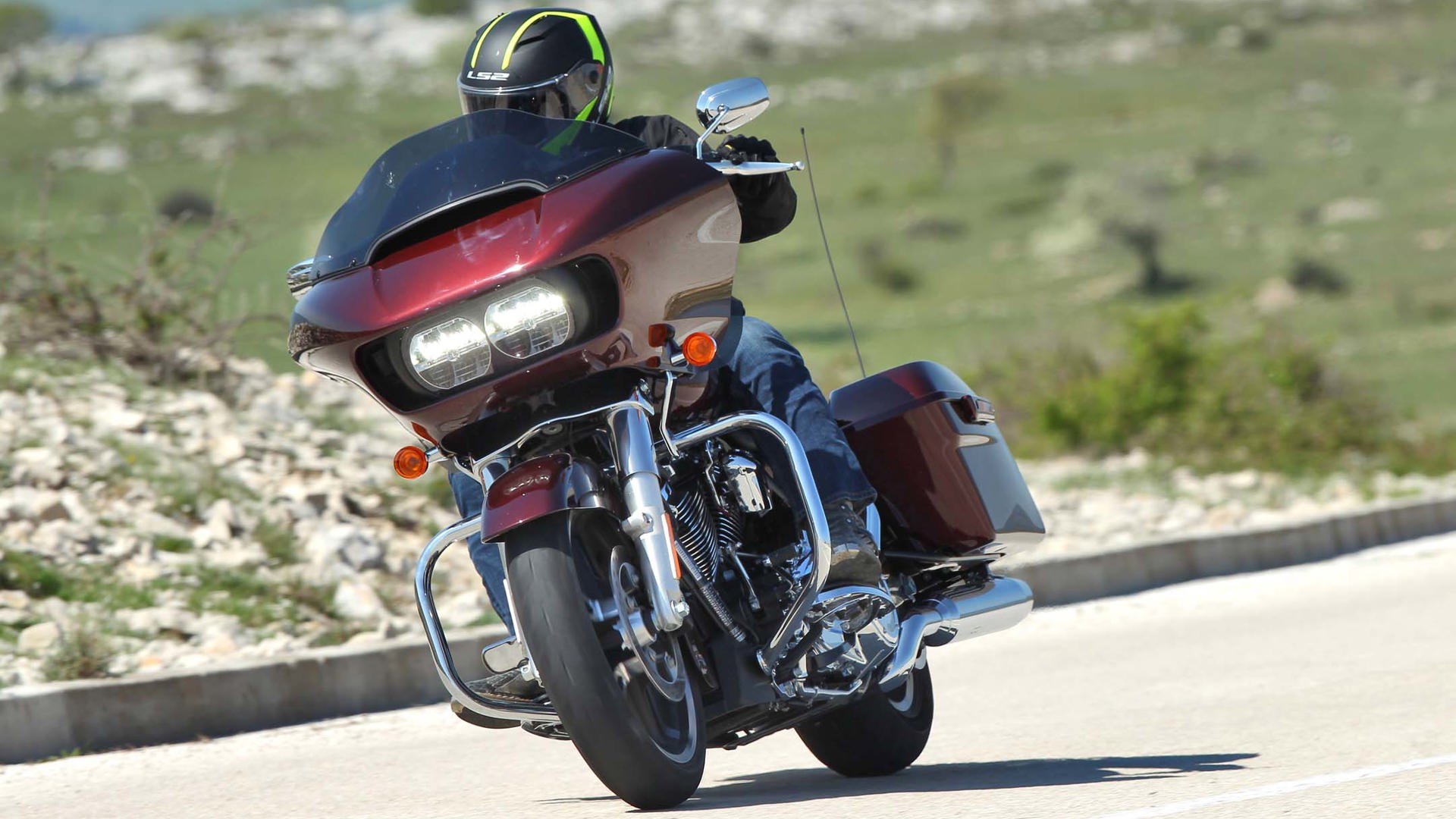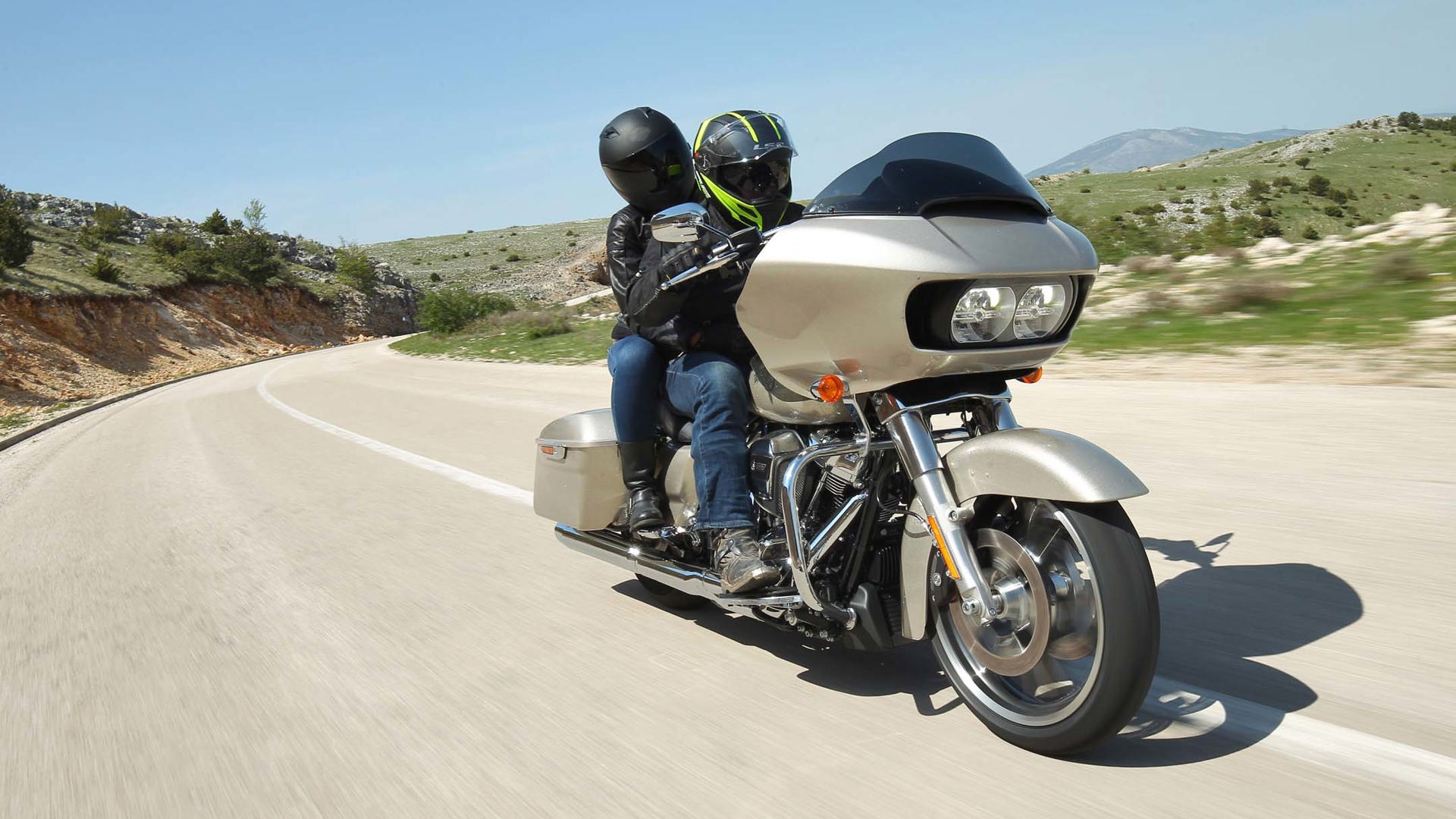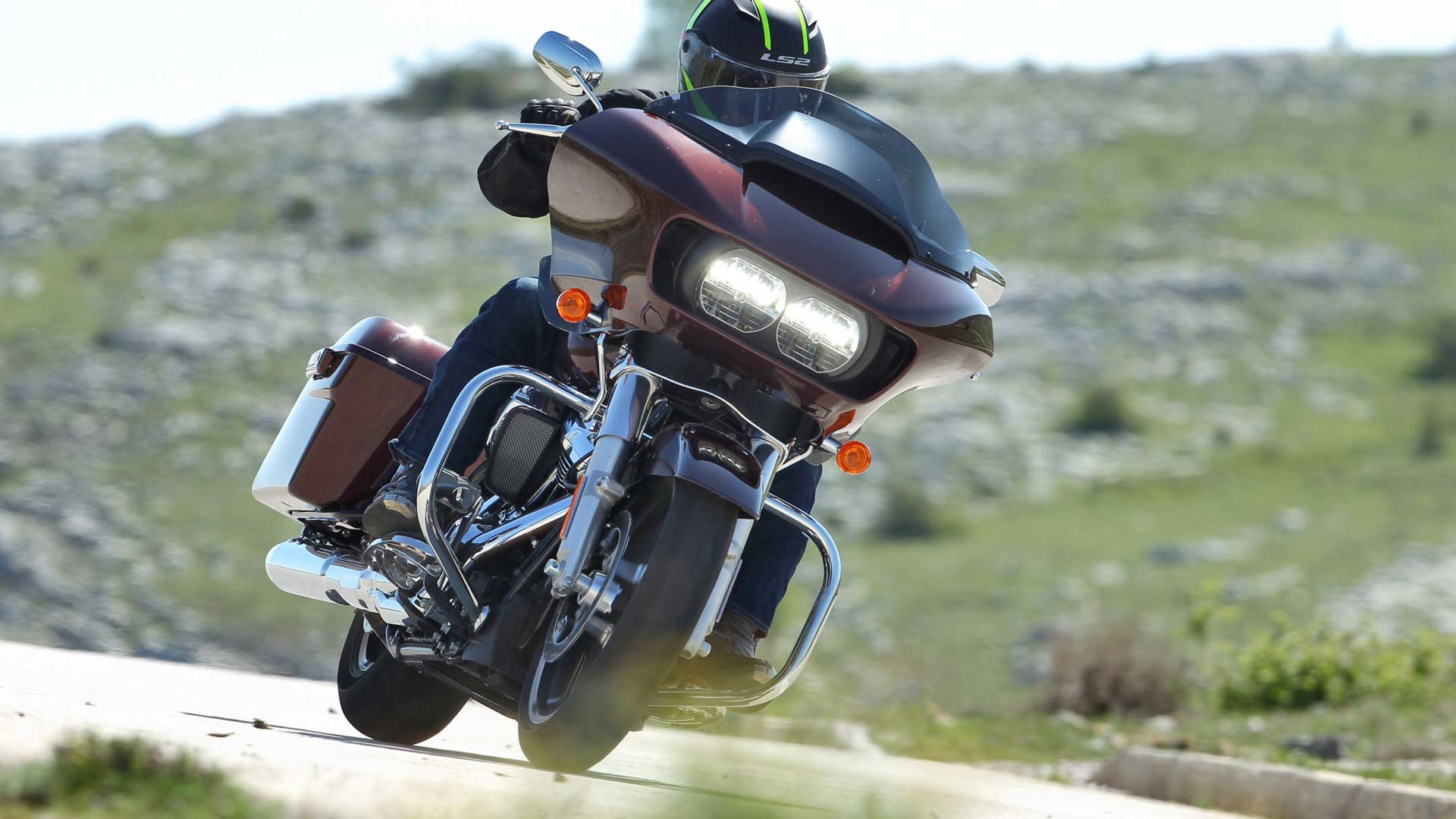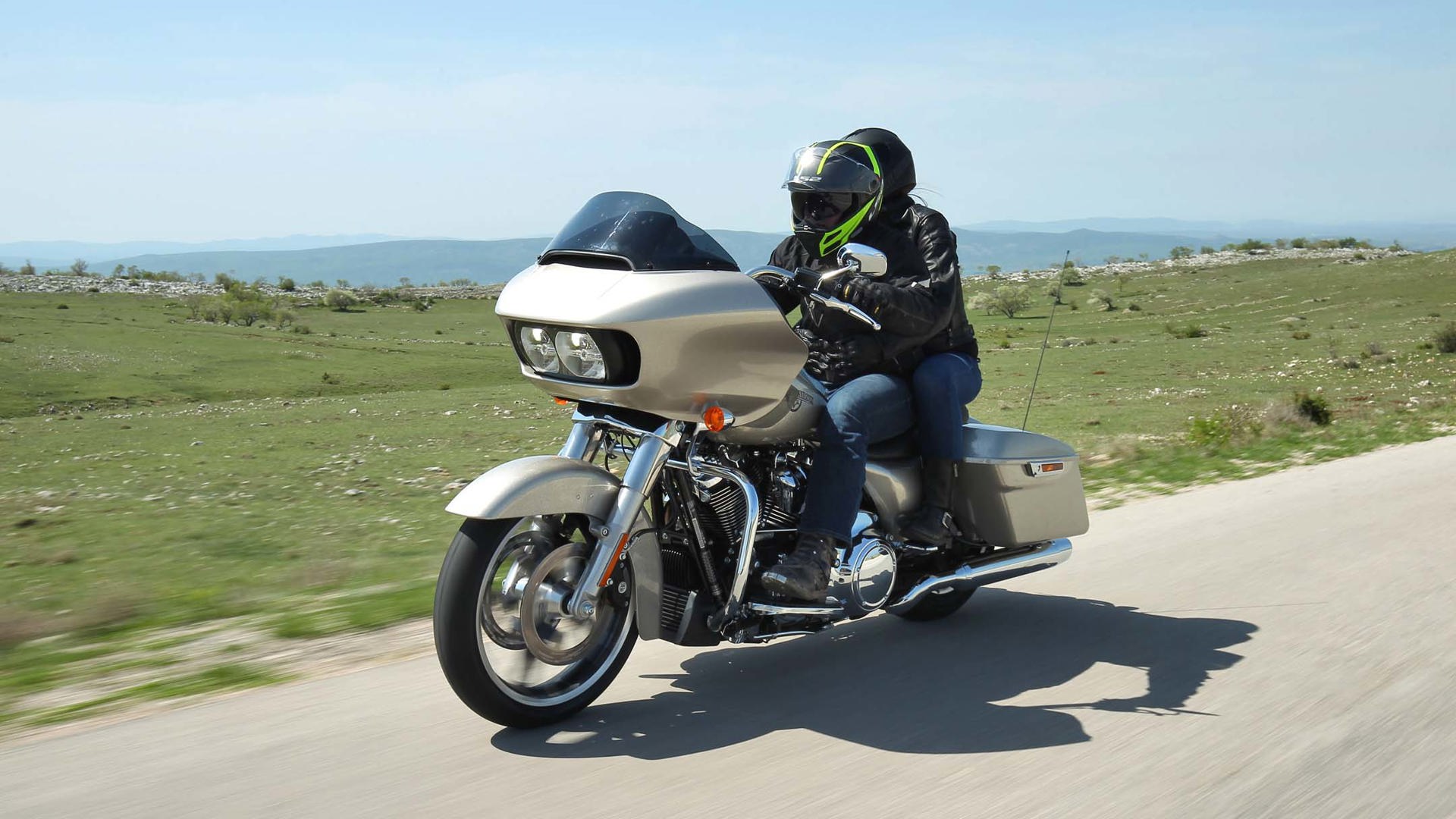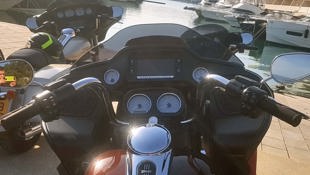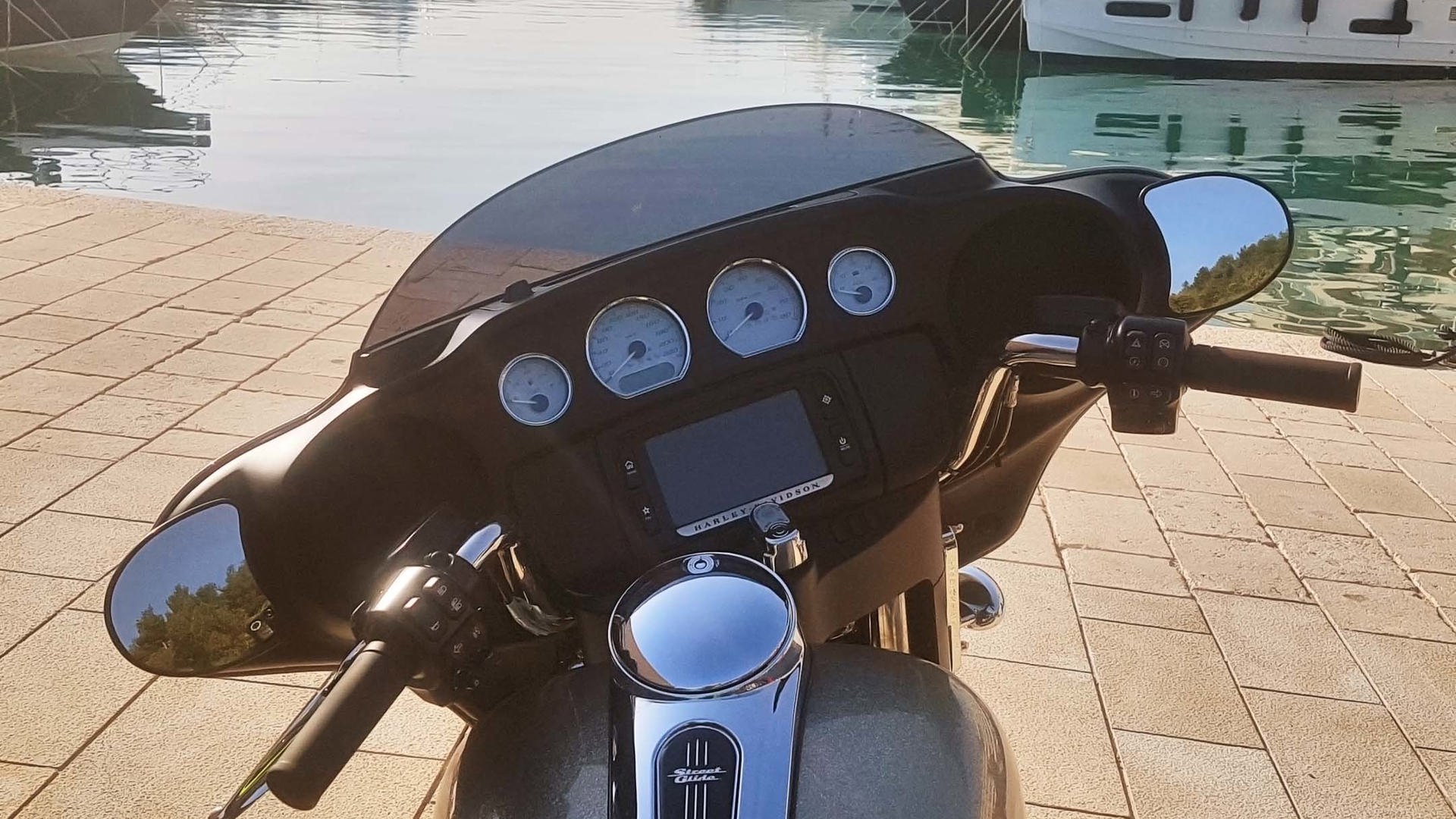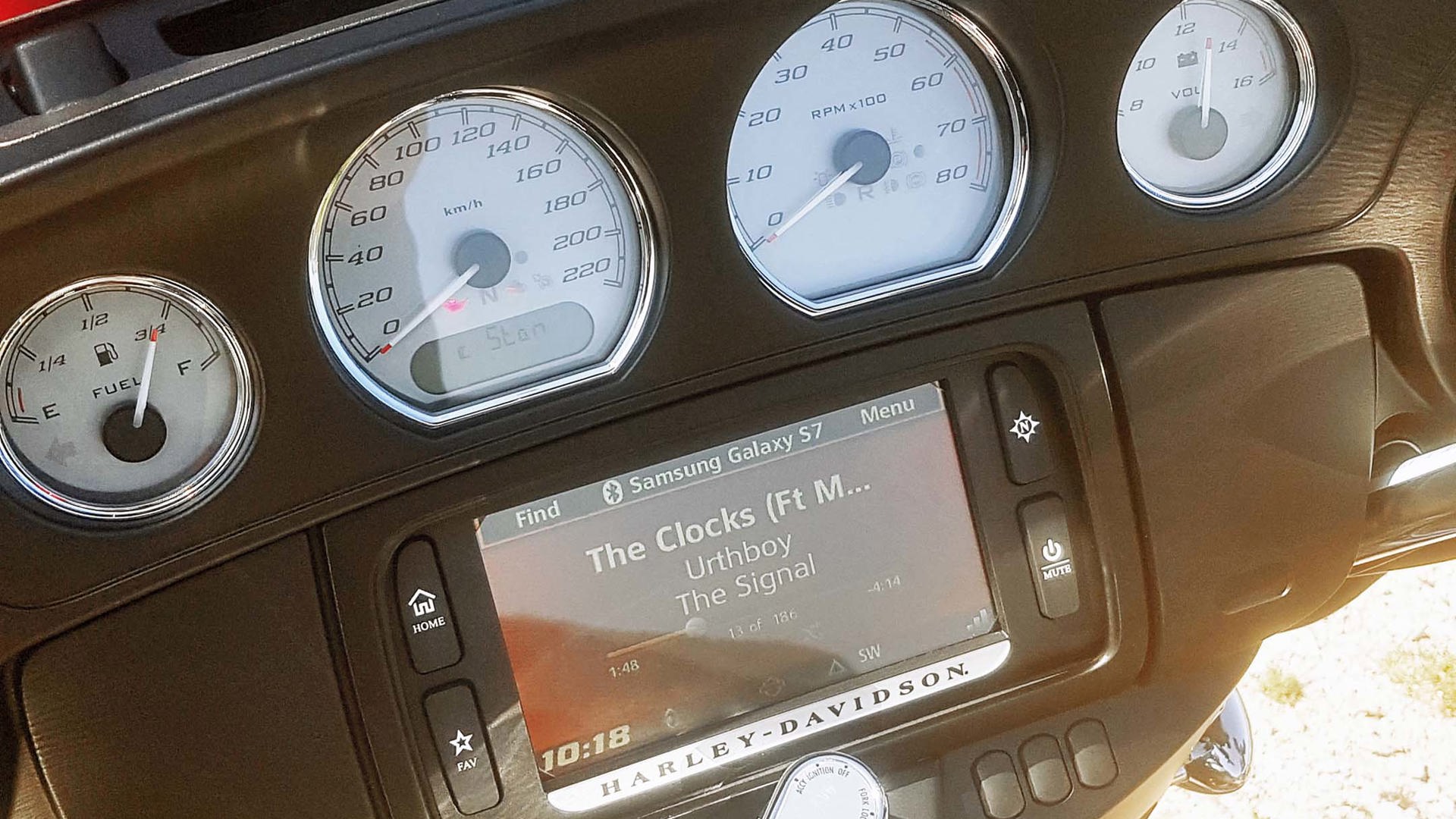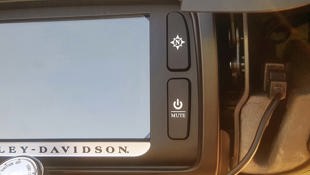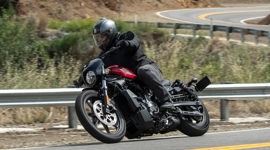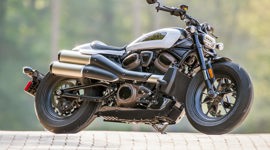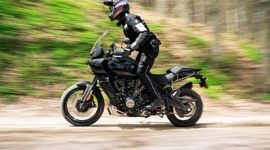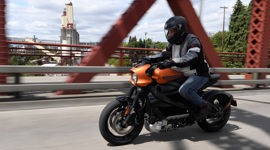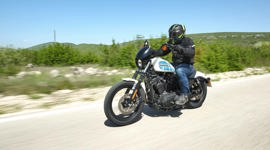Aerodynamics are about more than speed. If ever you wanted more proof of that concept, go ride Harley-Davidson’s touring models – specifically, the Street Glide and Road Glide. Both produce a robust aerodynamic cocoon that shields the rider from buffeting and wind noise, but subtle differences to the shape and structure of both deliver big differences.
The Street Glide’s bar-mounted unit brings the dashboard closer to the rider, making for excellent ergonomics – at least when it comes to operating the infotainment and navigation system in the cluster. You also get mirrors mounted in the fairing unit, and the result is not only a better position, but less buffeting and vibration on the mirrors, and therefore a clearer image.
The Road Glide’s frame-mounted unit is visibly bigger, and it produces a larger, smoother aerodynamic bubble, keeping the rider well and truly insulated from the wind of the highway. Even helmet buffeting is reduced dramatically.
The Road Glide also gets cooling ducts, which add a lot more cooling than they do turbulence. It’s a clever bit of design that I appreciated on a baking-hot day in the mountains of Split, Croatia. Lastly, the Road Glide gets bigger, deeper storage bins in the dash, for things like your wallet, phone, and house keys.
The same bins on the Street Glide are small, and the opening sits horizontally. I had no faith in the latch and so left my things in my pocket when on the Street, but had no drama storing them in the bins on the Road Glide.
Despite that shortfall, it was the Street Glide I found better to ride. At 5'6" I needed the better visibility I felt the slightly smaller screen and fairing allowed, and I appreciated being able to manipulate the touchscreen more easily. The gauges and screen were also better protected from glare because they were upright, while they were tilted slightly upward on the Road Glide.
More importantly, the Road Glide adds 11 kg to the Street Glide’s 377 kg wet weight, all of which is up high on the bars. It also adds 3 mm of trail for a total of 173 – while that perhaps has an impact on turn-in and front-end feel, I think the weight is the far bigger factor.
The Road Glide also has less ground clearance when leaning, something one of my colleagues found out on one corner. His exhaust left a big scar on the road as it ground out, but he was able to ride through it and safely out the other side. My seat suffered more than anything else, as I had a moment of fright watching him.
Other than the front screens, the two bikes are identical mechanically. Both are powered by the 107 Milwaukee Eight engine with its 93 hp and 110 lb-ft of torque.
Those are low numbers when you consider the 1,746 cc of displacement this V-twin is packing, and lower still when you consider the weight of the bikes. Any disappointment the numbers give you is mitigated by the smooth surge of acceleration the Milwaukee engine delivers from down low.
If you’re used to riding Japanese bikes, you might find it hard to make the mental adjustment needed to keep these bikes down low in the rev range. They run out of steam just after 5,500 rpm, and it takes discipline and patience to let the bike lug at less than 3,000 rpm before cracking the throttle. When you do, it rises steadily and confidently toward highway speeds. When overtaking, there’s plenty here to roll and zip by even the most belligerent of Croatian Škoda drivers.
I enjoyed the infotainment system, and the ability to listen to music via Bluetooth from my phone, but wish the system had a pause button. There isn’t one, neither on the screen nor on the easy-to-use-and-understand toggle switches mounted on the bars. There is a mute button, but it doesn’t stop the song currently playing.
The toggle controls are an elegant solution to controlling a unit aboard a bike, and the touchscreen works with gloves, so it really isn’t hard to manage the functions of the unit while on the road. And, while I’ve scoffed at the concept in the past, I’ll admit that some of the more boring pieces of road were enhanced by my favourite tunes. Even if Aqua and S Club Seven don’t quite fit the Harley-Davidson ethos….
On the subject of ergonomics, I found it awkward to get my foot between the running board and the gear lever enough to shift up comfortably, and for the first time in my life made myself acquainted with the heel shifter. Once I got used to it, I found it easy to use, but it did take getting used to.
My limited inseam appreciated the 695 mm seat height, but I struggled with the sidestand. It’s long, and mounted far forward, it was comical to watch me kick it out and then have to nudge it the rest of the way with my toes. Good calf stretch though. You cannot start the bike with the sidestand down, something veteran Harley owners will likely appreciate.
Road manners on these big tourers are as you’d expect. On the flowing, open sections with decent pavement, there are perhaps few things as comfortable and easy to ride as a touring bike. You may find HD’s foot-forward controls put pressure on your lower abdomen and harsher bumps will send a shock-wave through your coccyx and shoulders, but that could perhaps have been sorted by playing with the hand-adjustable suspension. To do so, you need to take the pannier bags off, so I didn’t.
One advantage of the Glide twins’ heft is that two-up riding is easy. The 55 kg passenger I loaded up for a brief stint had little impact on the bike’s acceleration, handling, or road comfort. The two 32 mm four-piston brakes up front, and the 32 mm four-piston rotor they’re linked to out the back handled the added weight with ease. Brake feel is good, which allowed for smooth braking, and a happier, more comfortable pillion passenger. Both the linked-brake system and ABS are standard.
When corners present themselves, you’ll be well equipped to handle them at a sedate speed, and even big handfuls of brake lever don’t upset the chassis too much in a straight line. I liked the feedback from the 19-inch front tire more than I expected, as it traced the imperfections and pebbles in the road for my hands without alarming the rest of the chassis. Ultra-tight corners require discretion, and patience, but this is a big bike, and a touring bike after all. If you’re here to read about how well the Street Glide carves corners you’re probably after a different bike segment entirely.
What I can tell you is that a Road Glide or Street Glide is a good way to enjoy a relaxing ride through fantastic scenery, with the added benefit of Harley-Davidson-endowed street cred. There are other tourers – the BMW K1600 and the Honda Gold Wing come to mind – that take on this segment from a slightly different angle and execute on their mission extremely well. They’re worth a shop, if a tourer is what you want.
If what you really, really want, is a Harley-Davidson touring bike though, you have two strong options: The smooth, cocooning, cool-as-heck Road Glide, or the slightly easier to ride and use, quintessential tourer – the Street Glide.
Pricing: 2018 Harley-Davidson Touring Models
2018 Harley-Davidson Street Glide: $26,199
2018 Harley-Davidson Road Glide: $26,599
